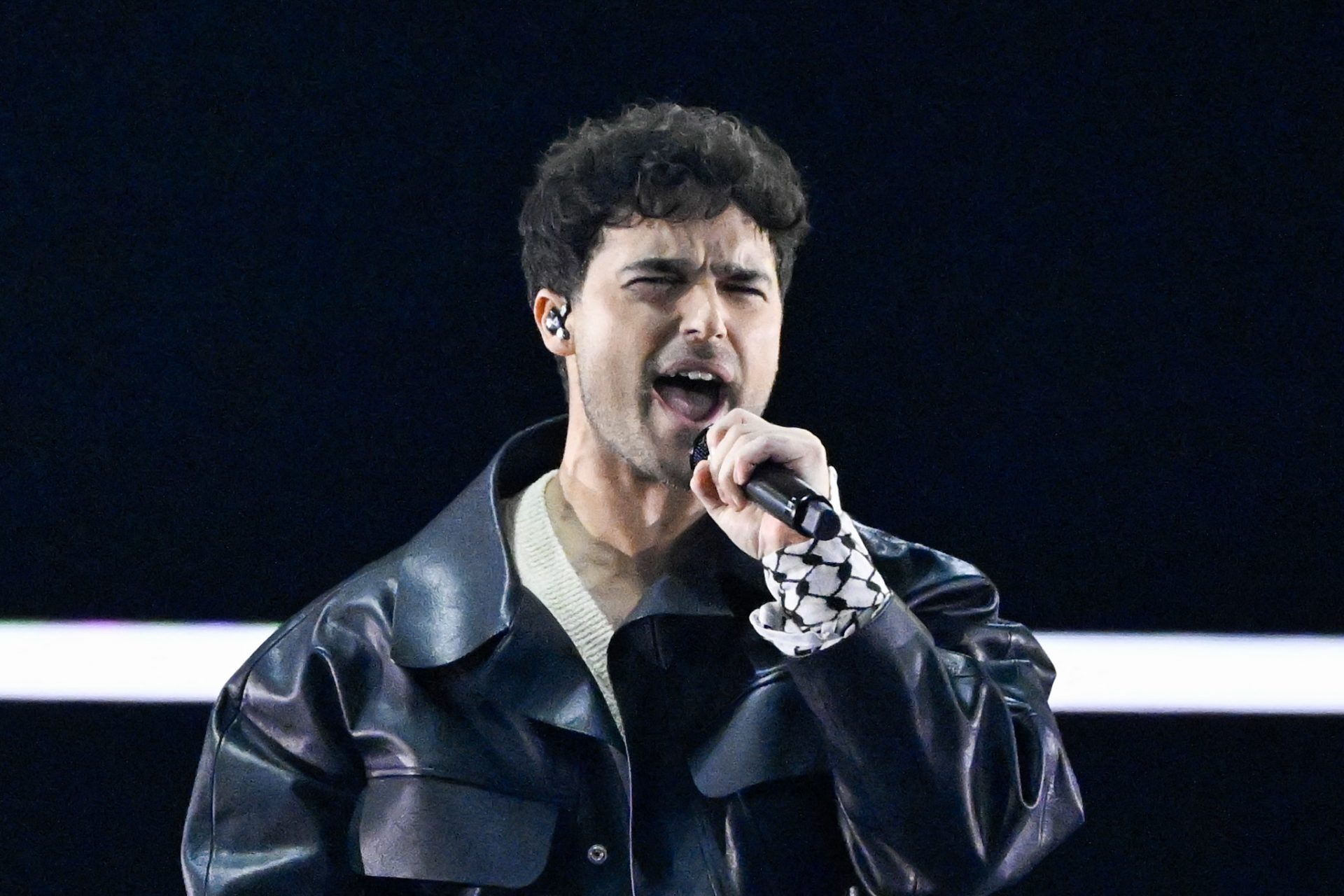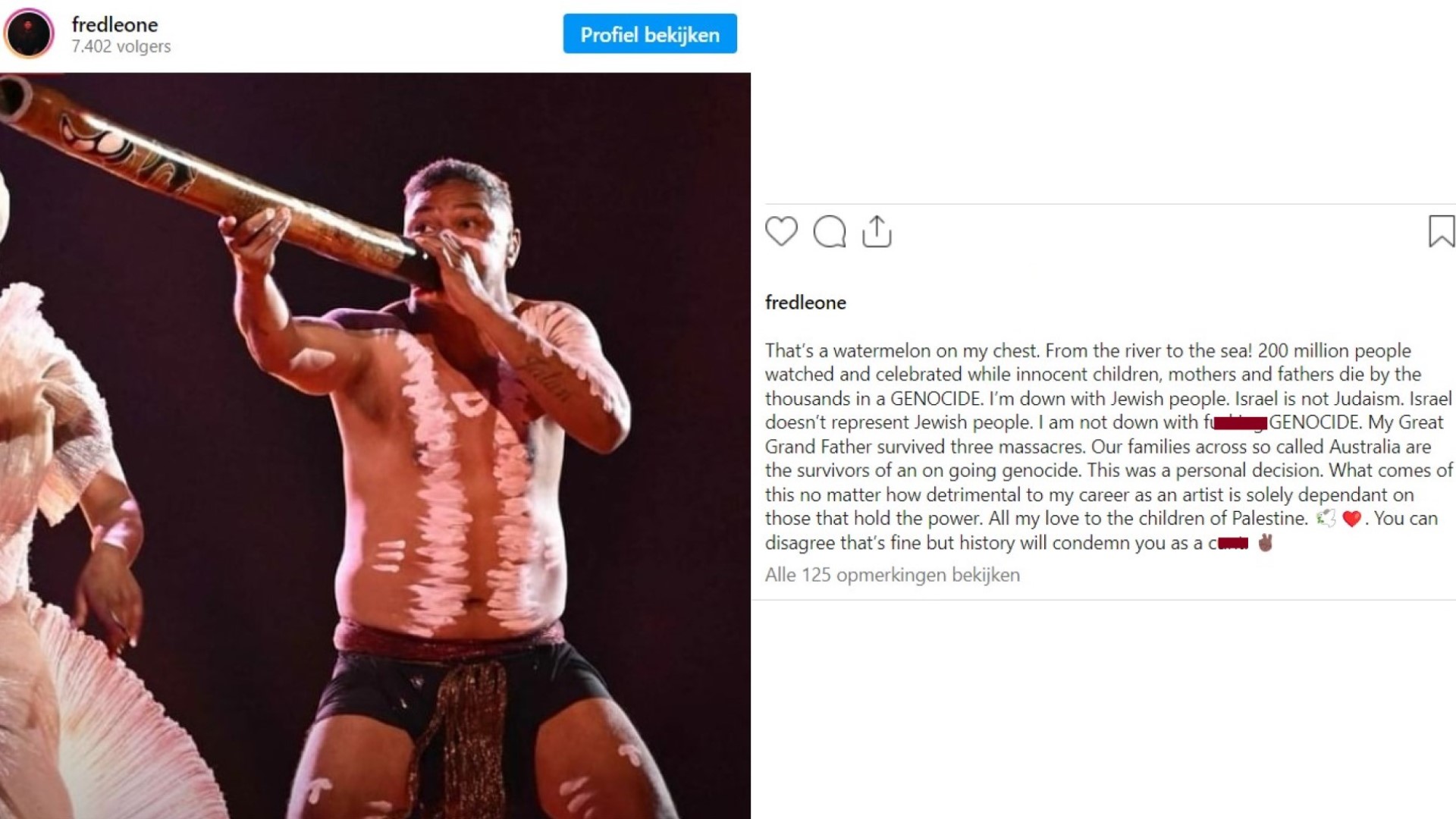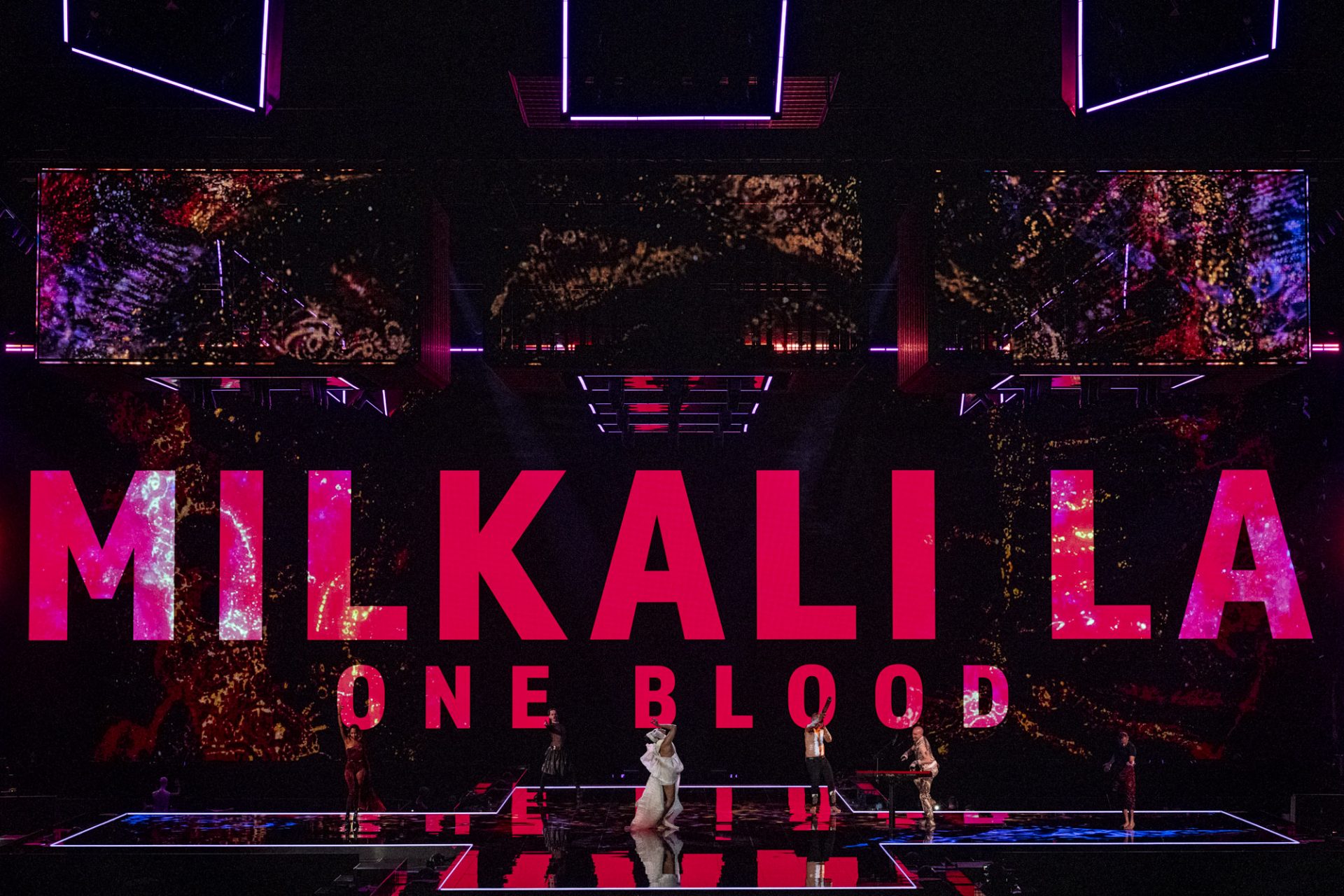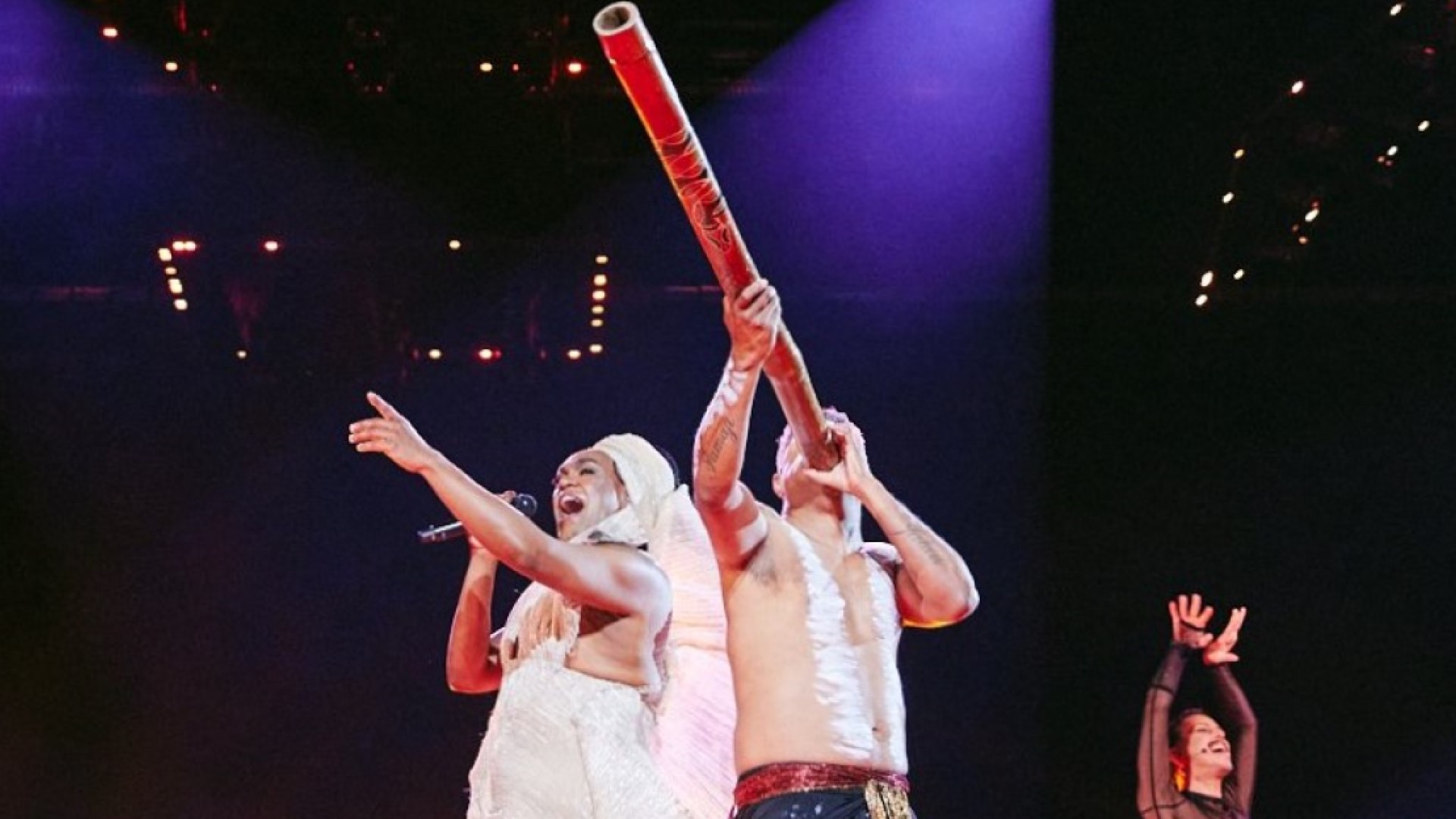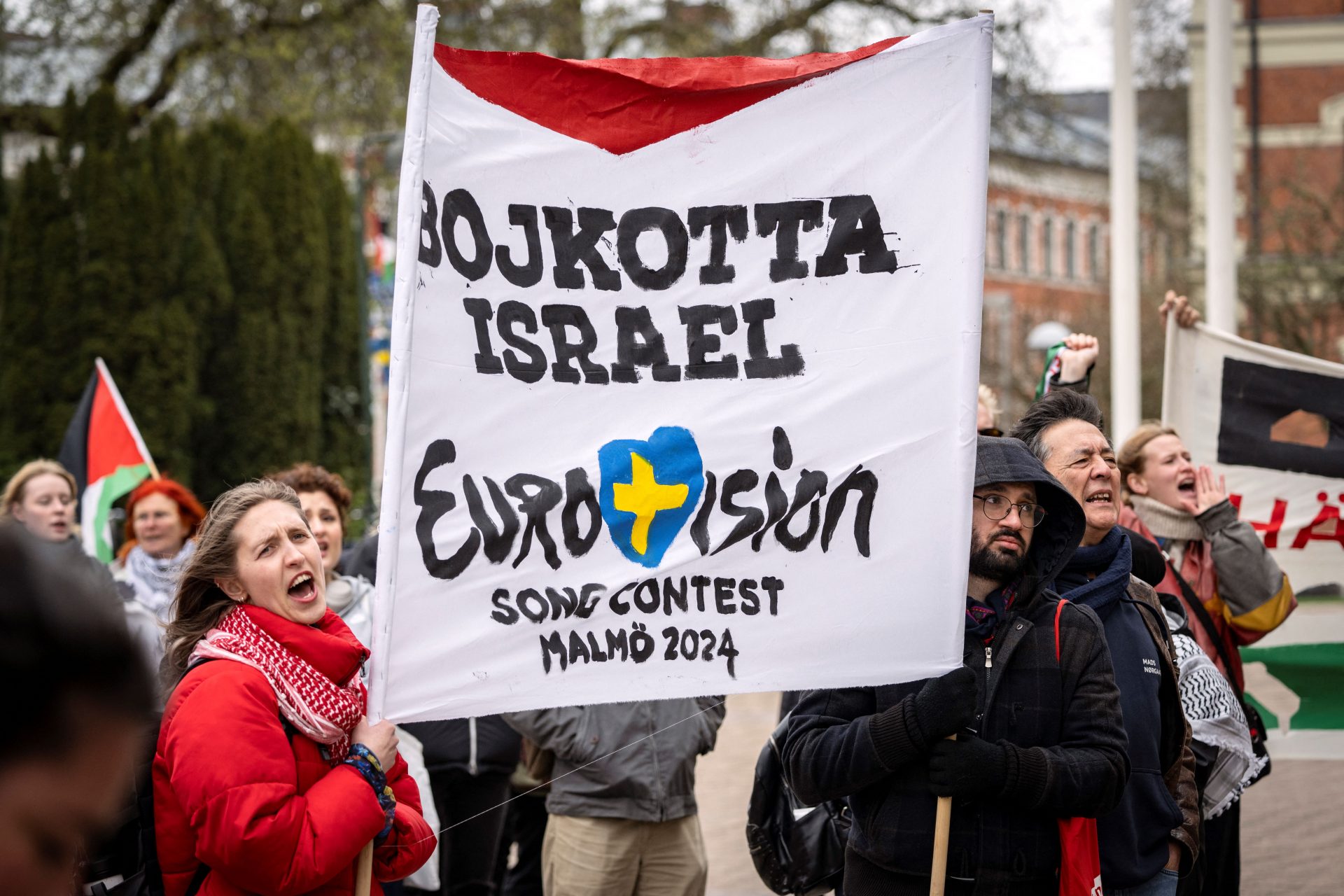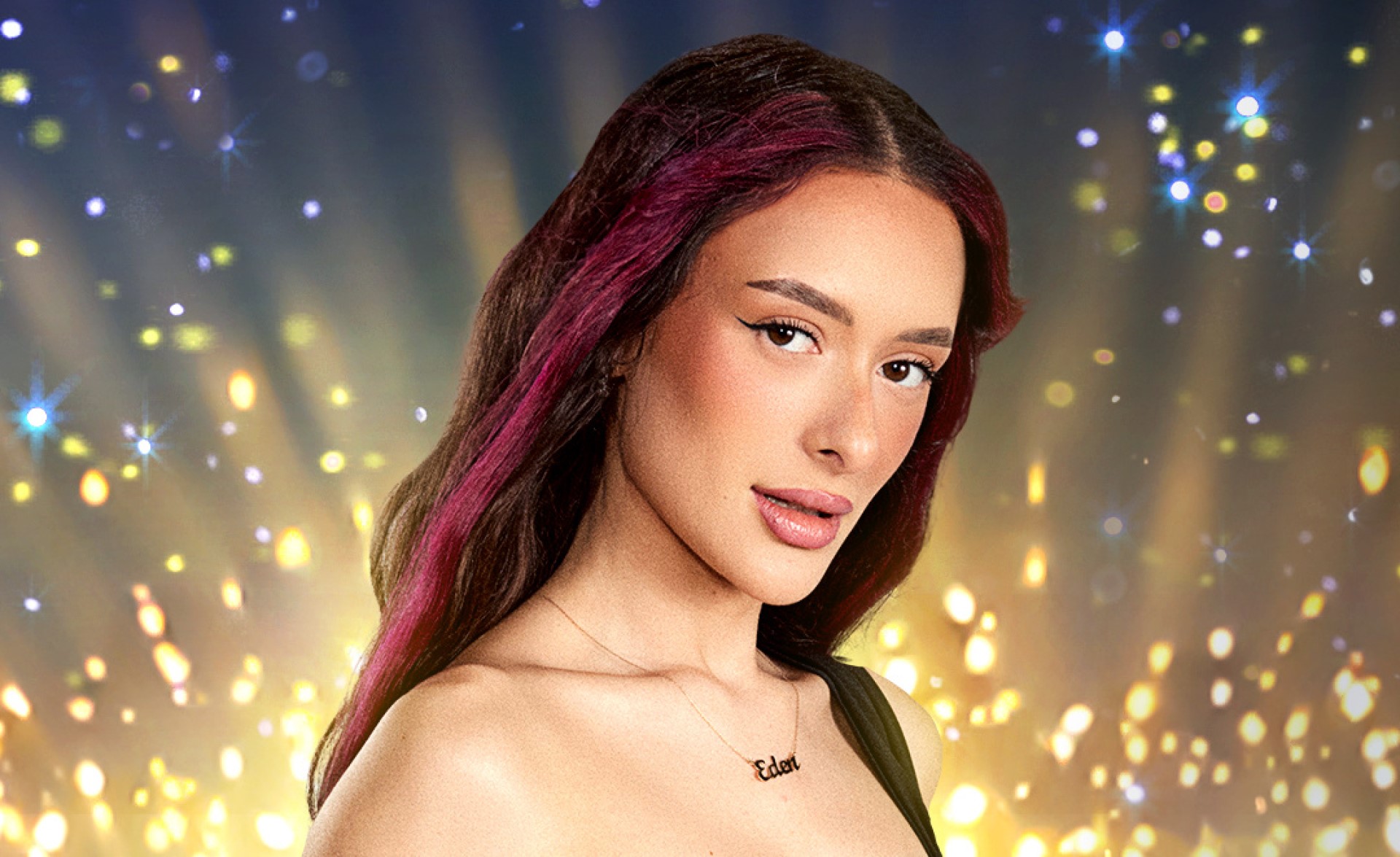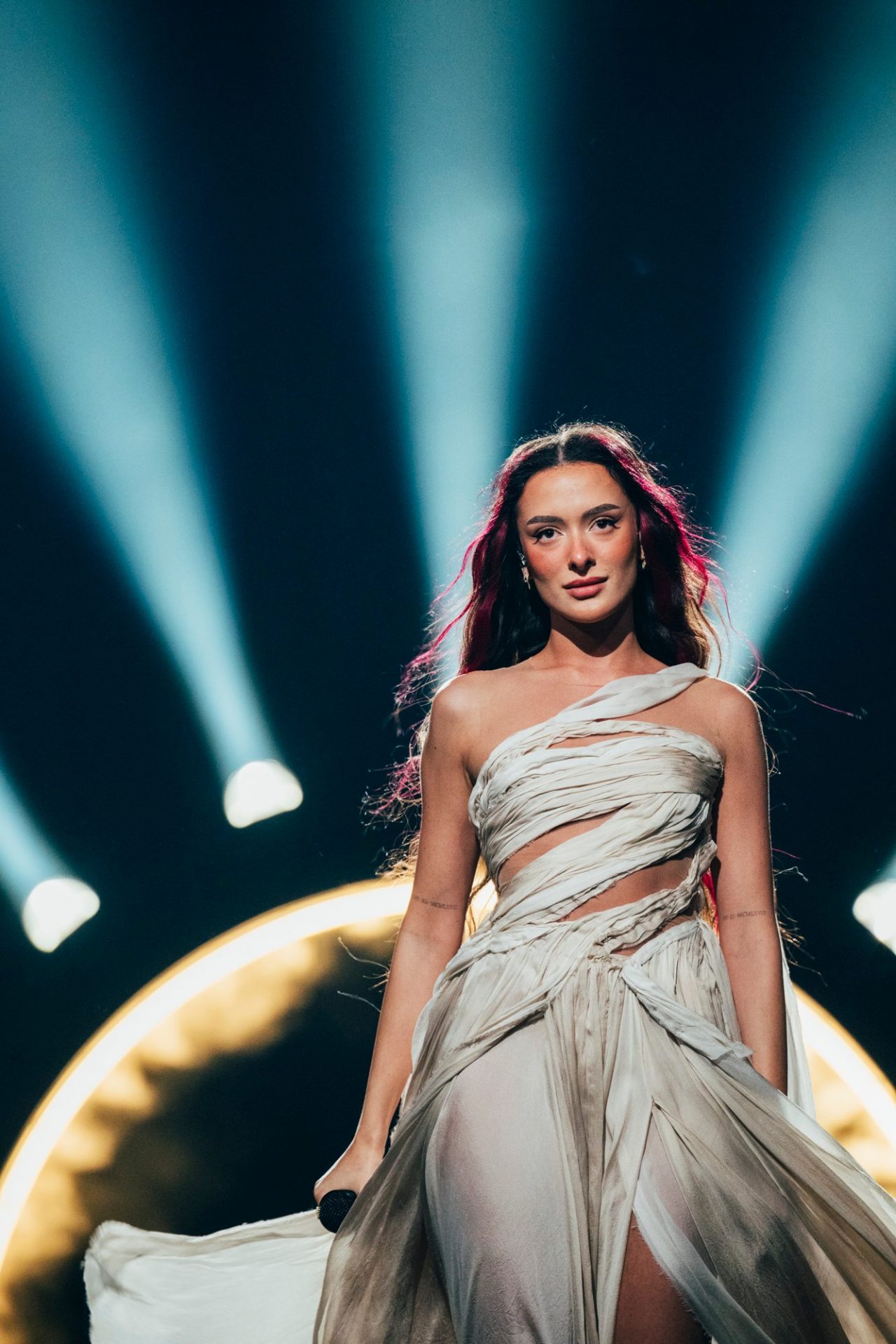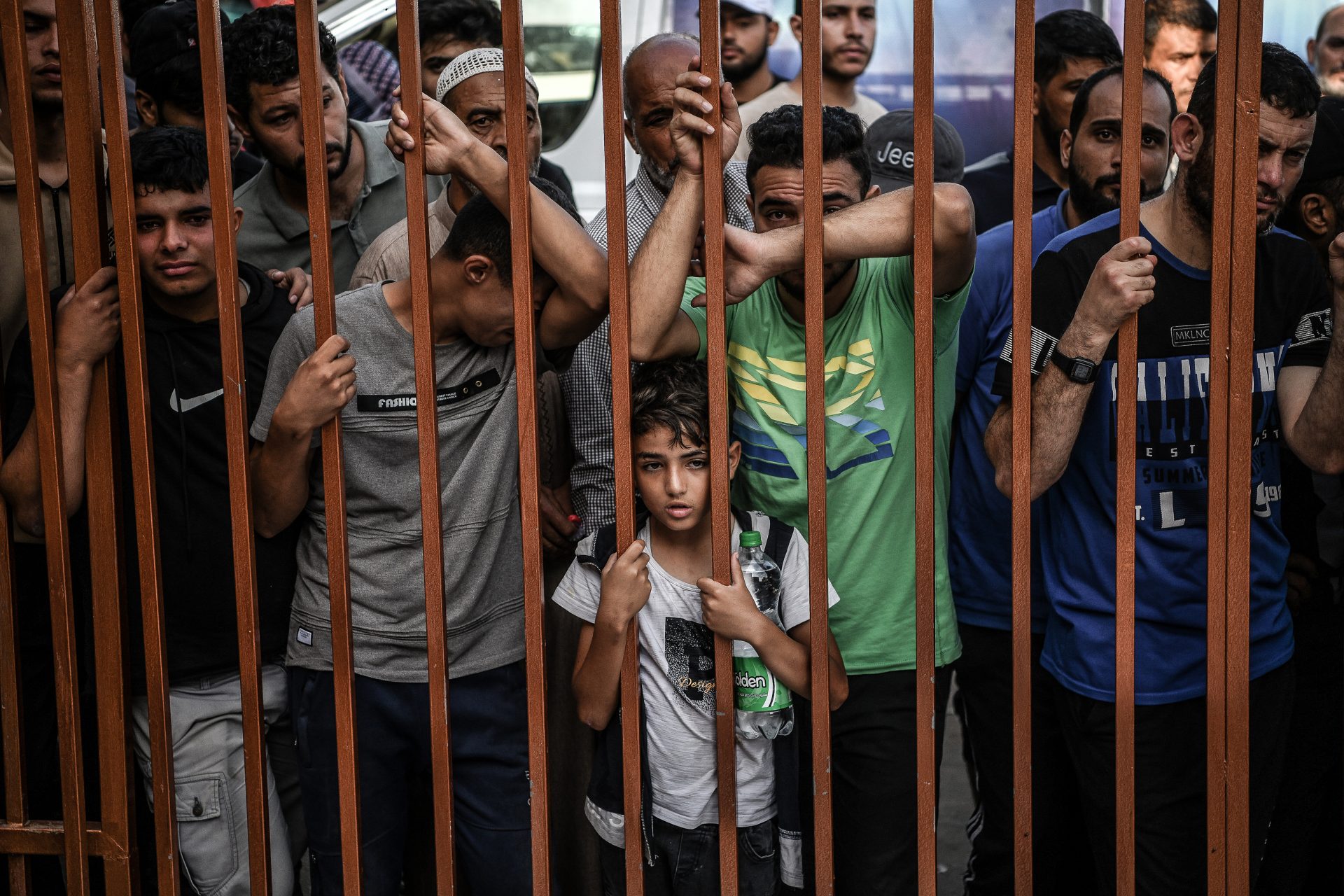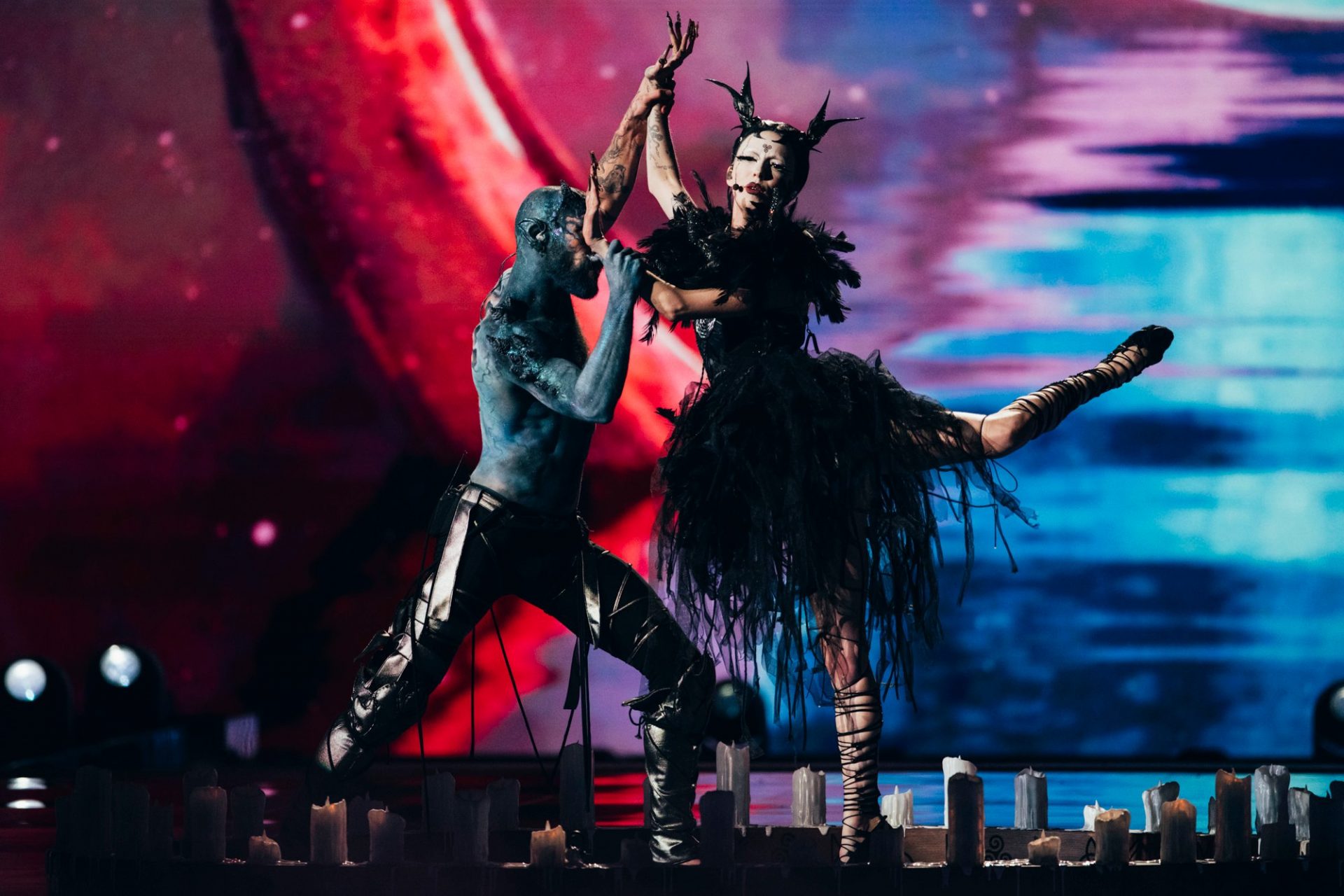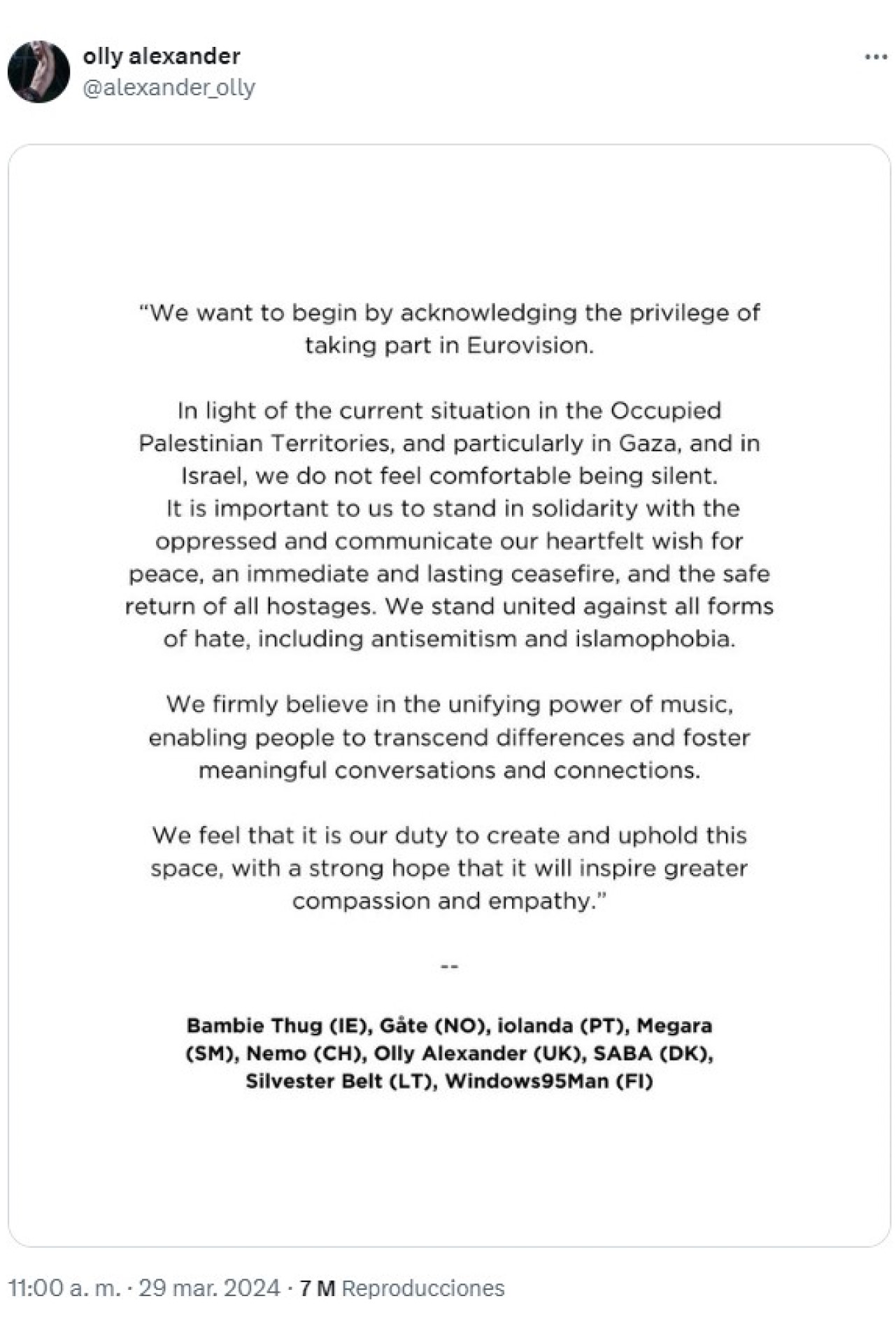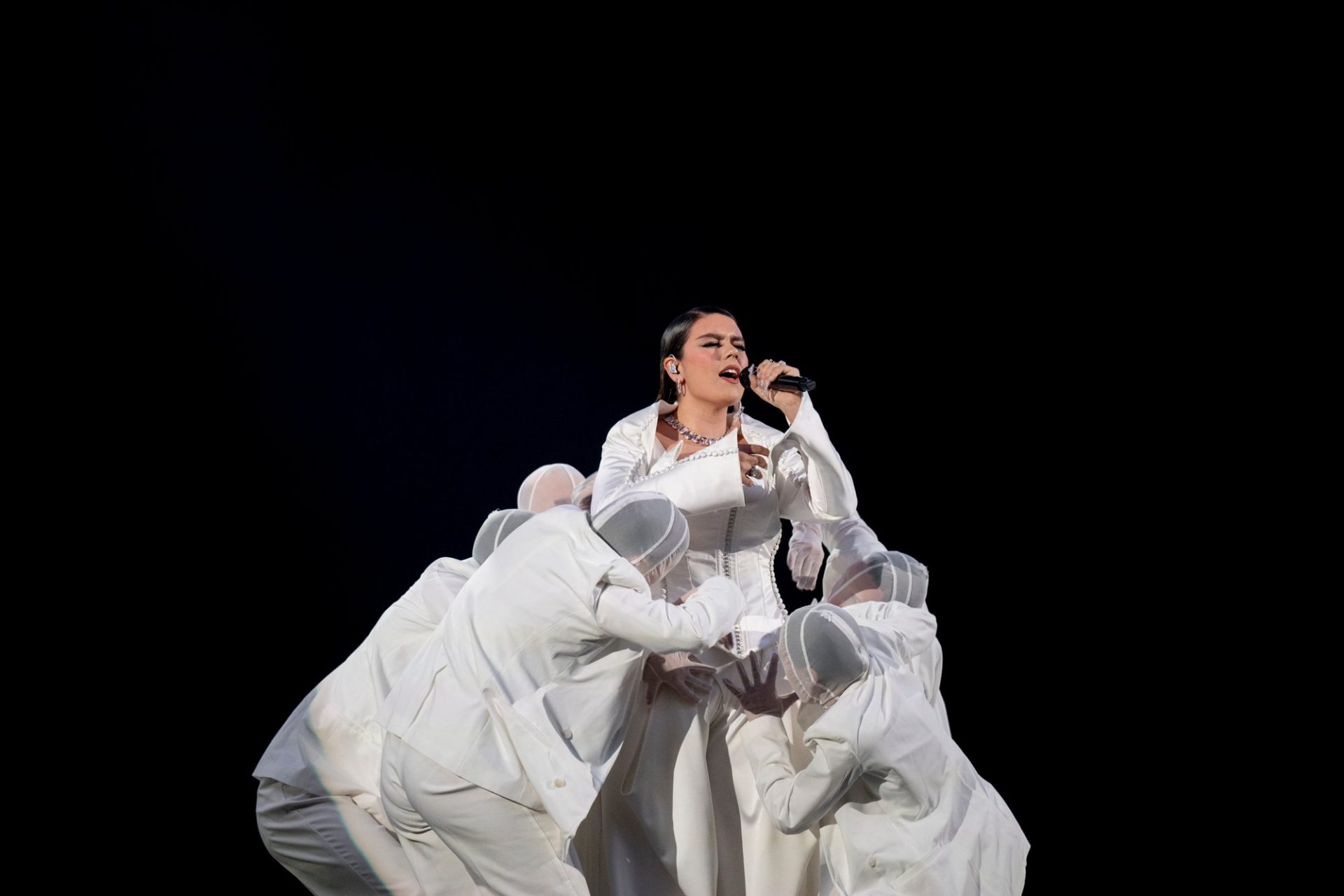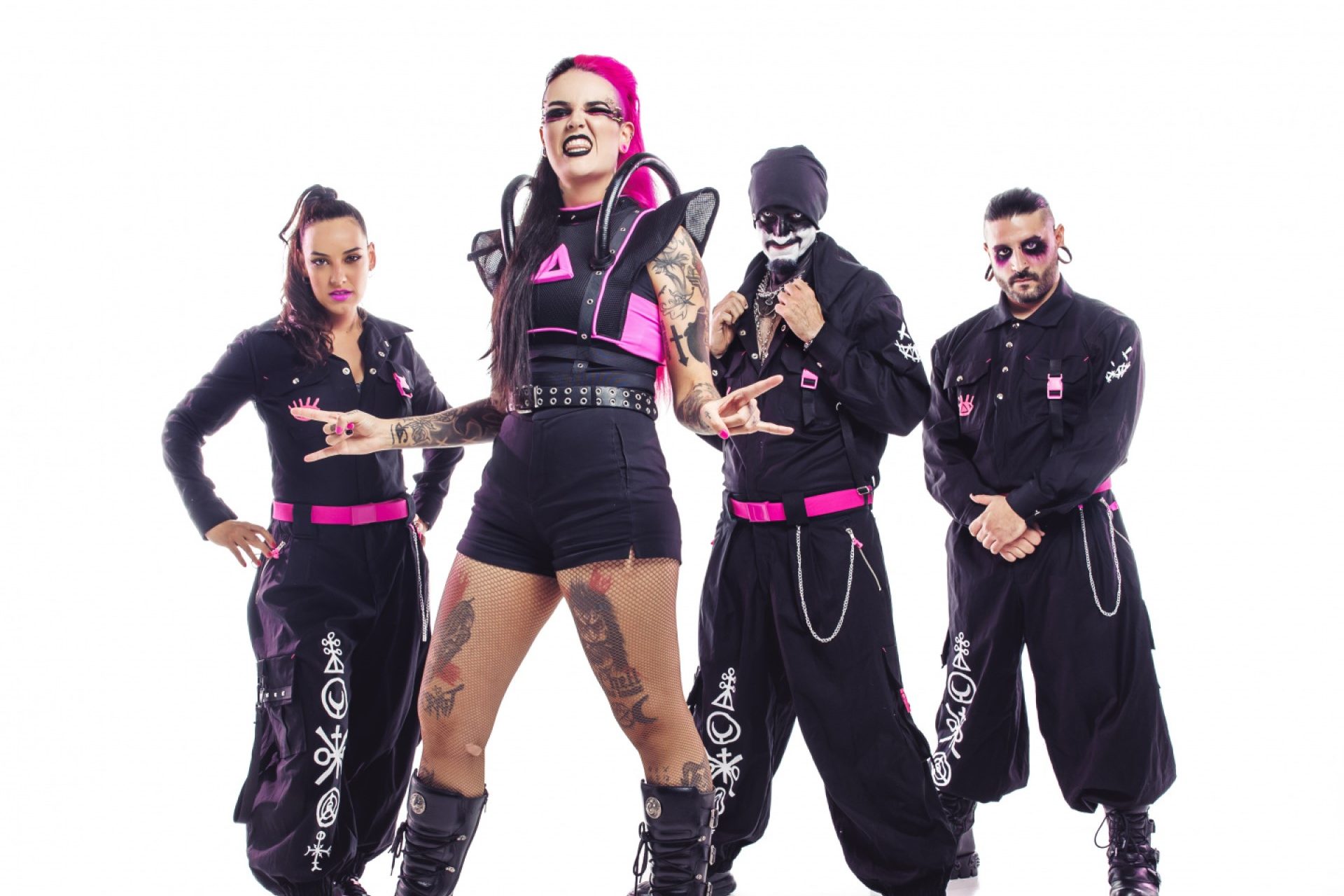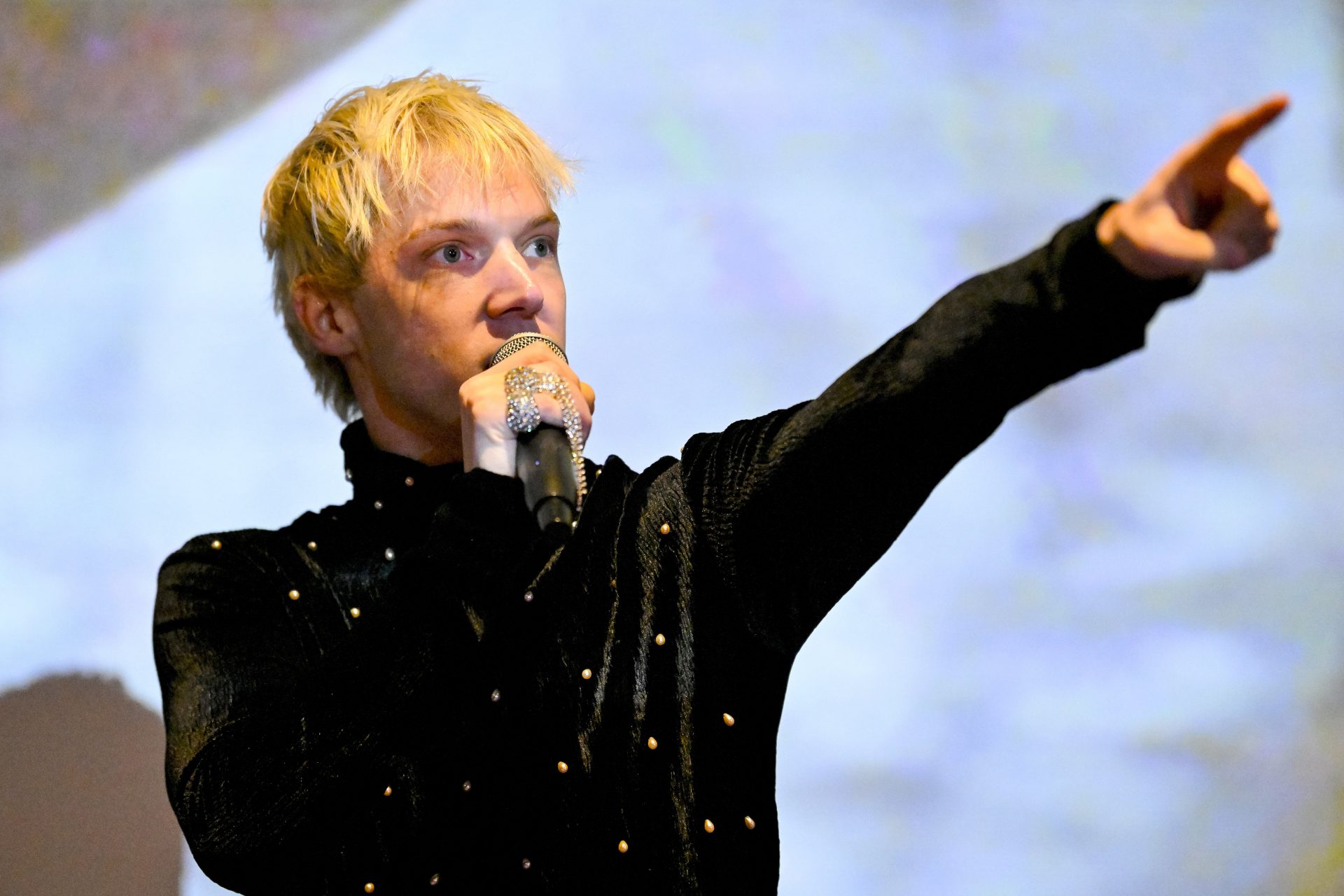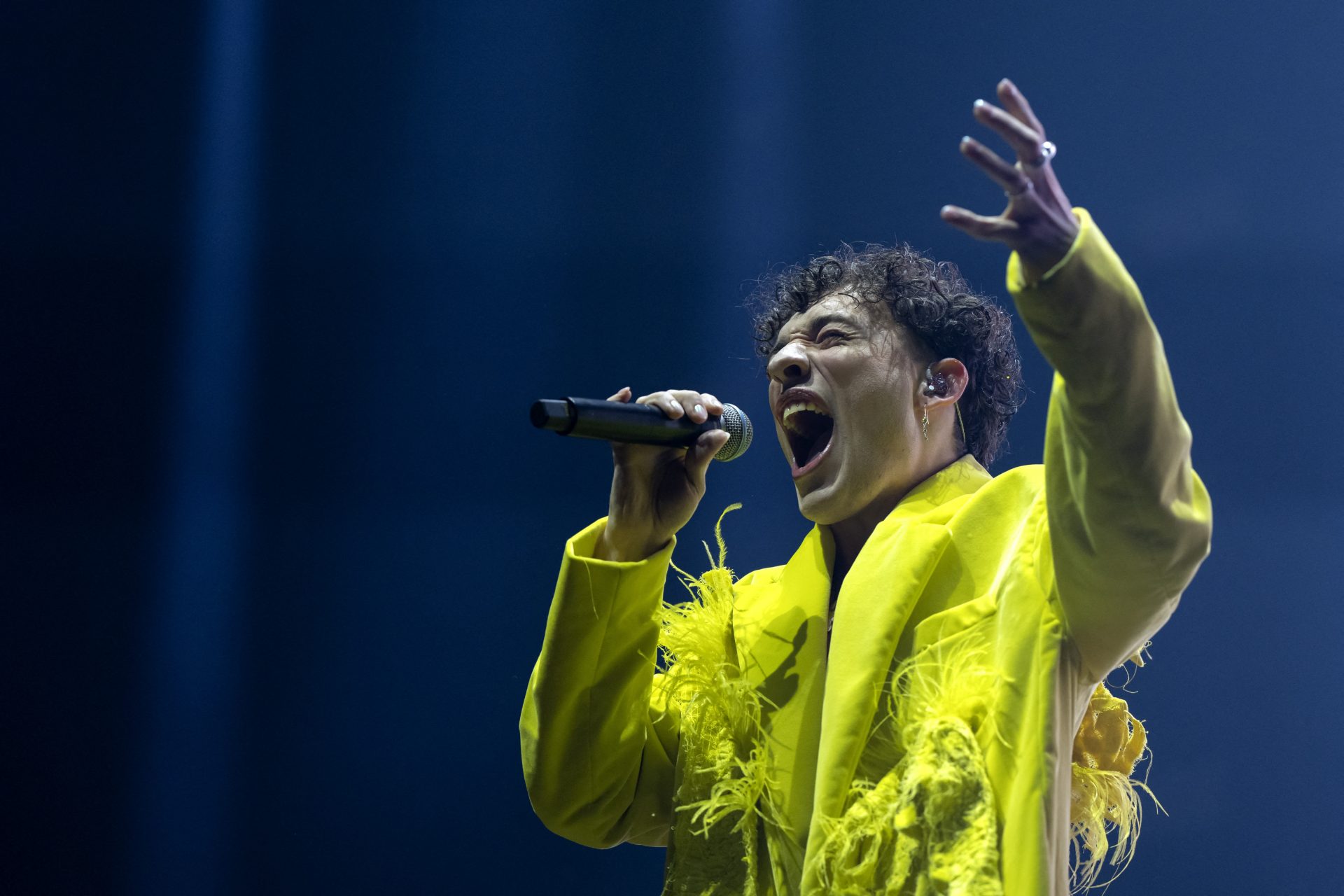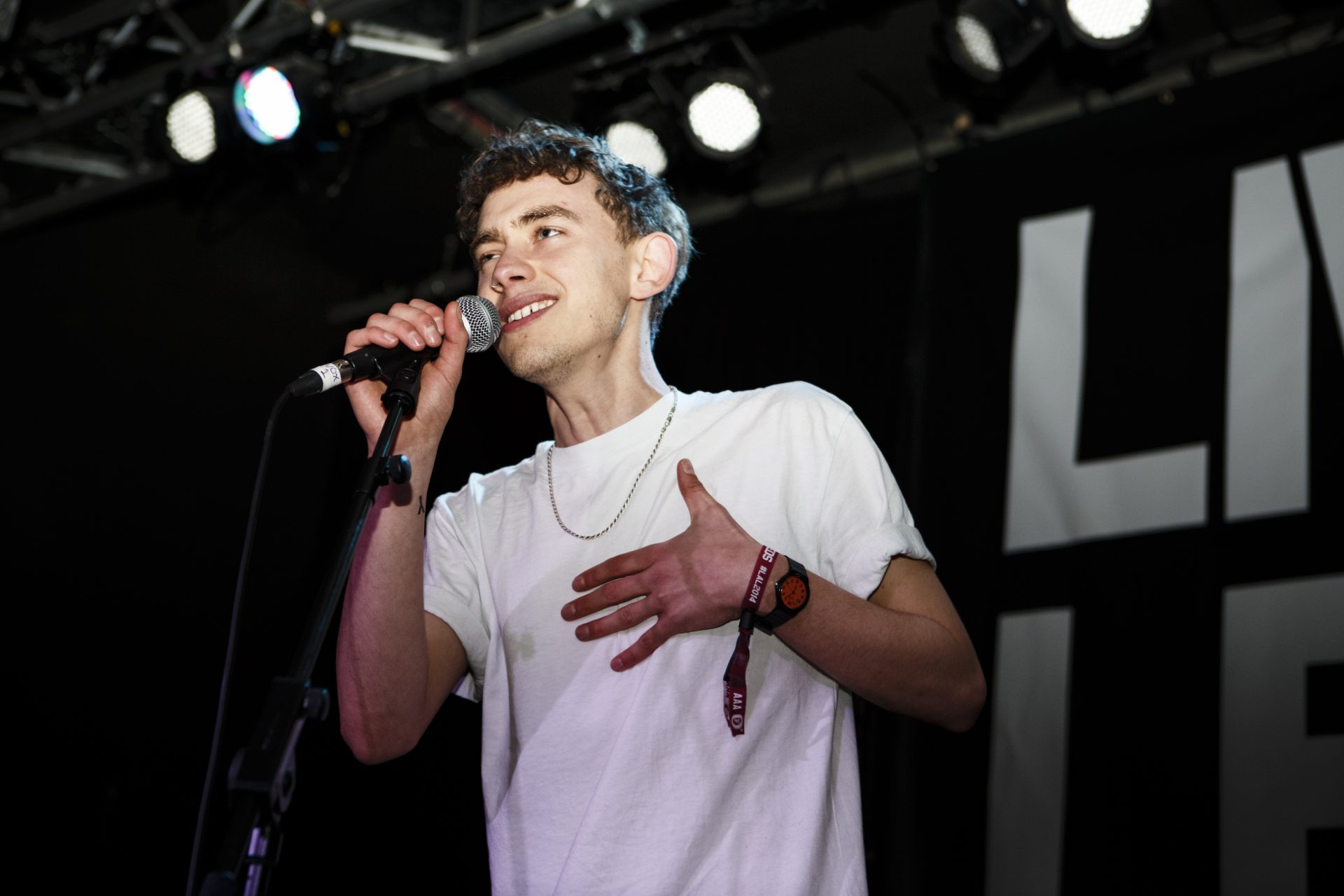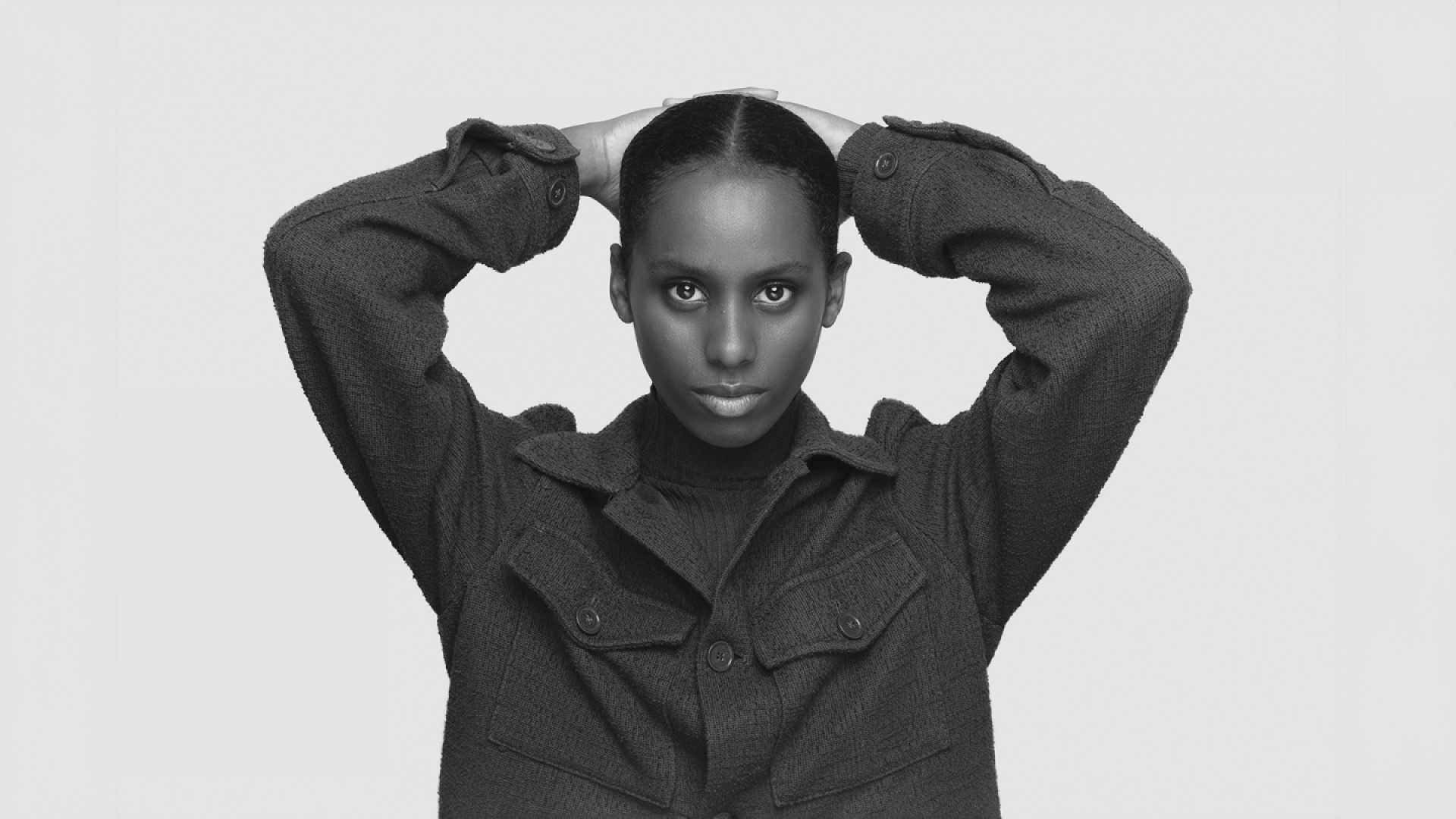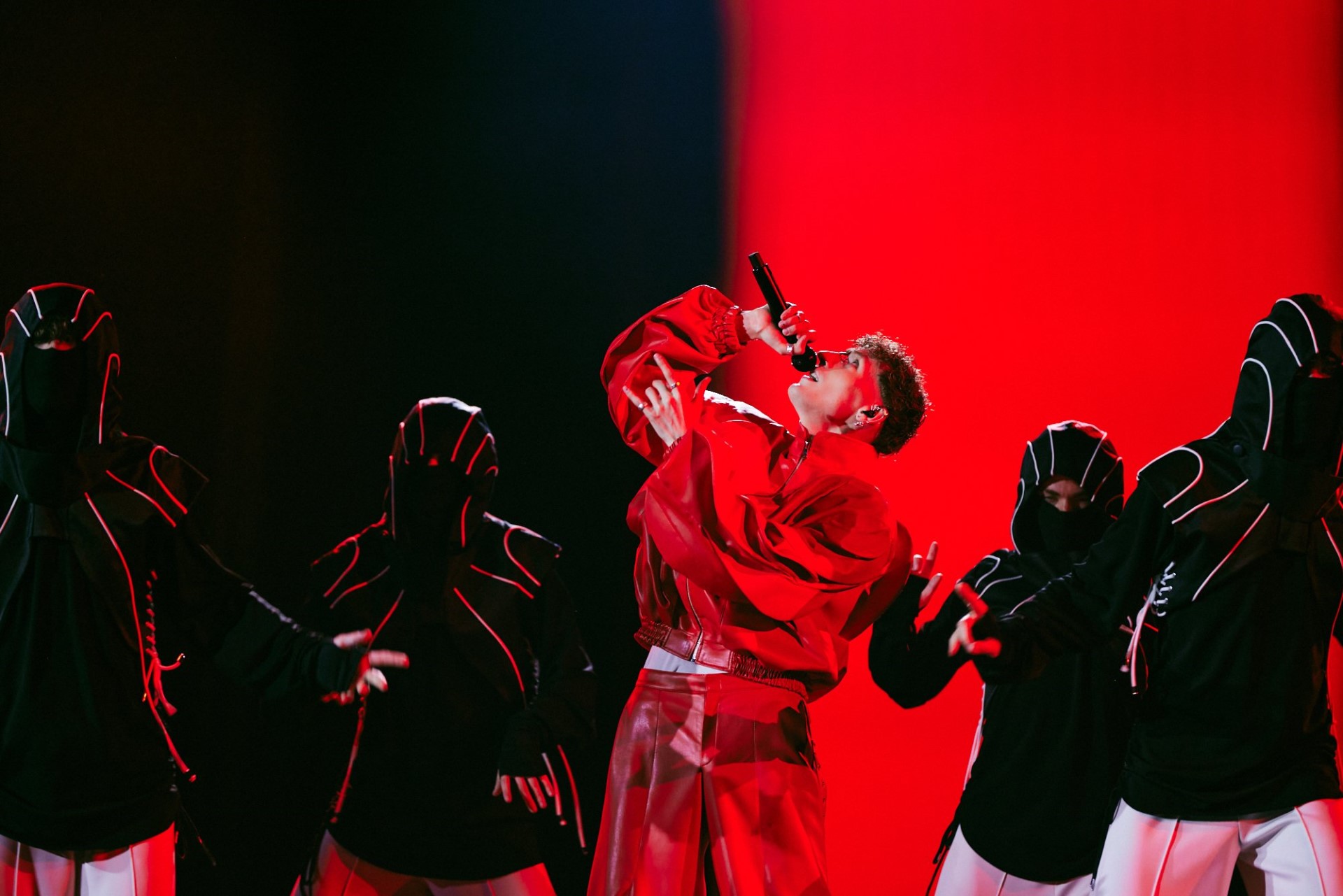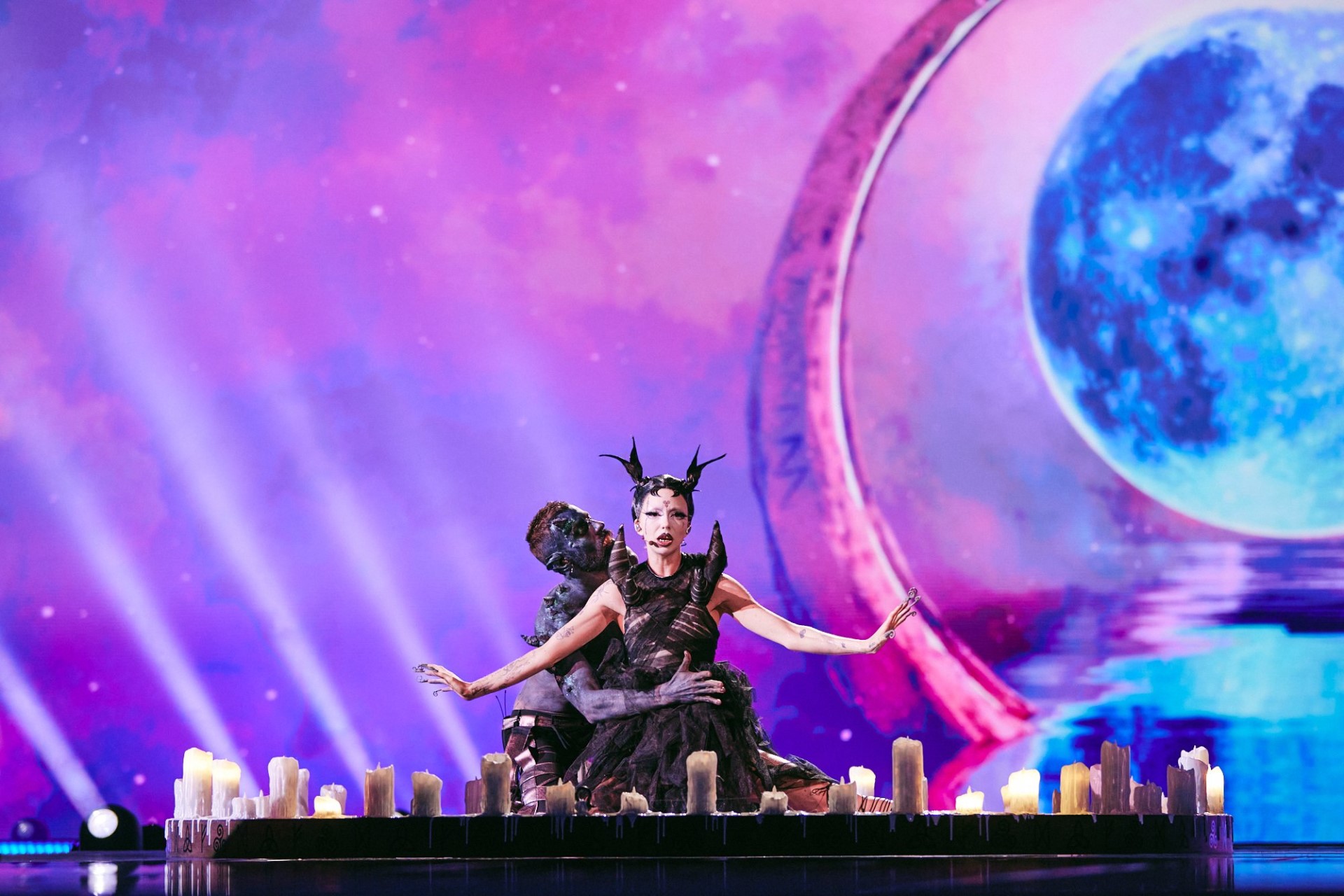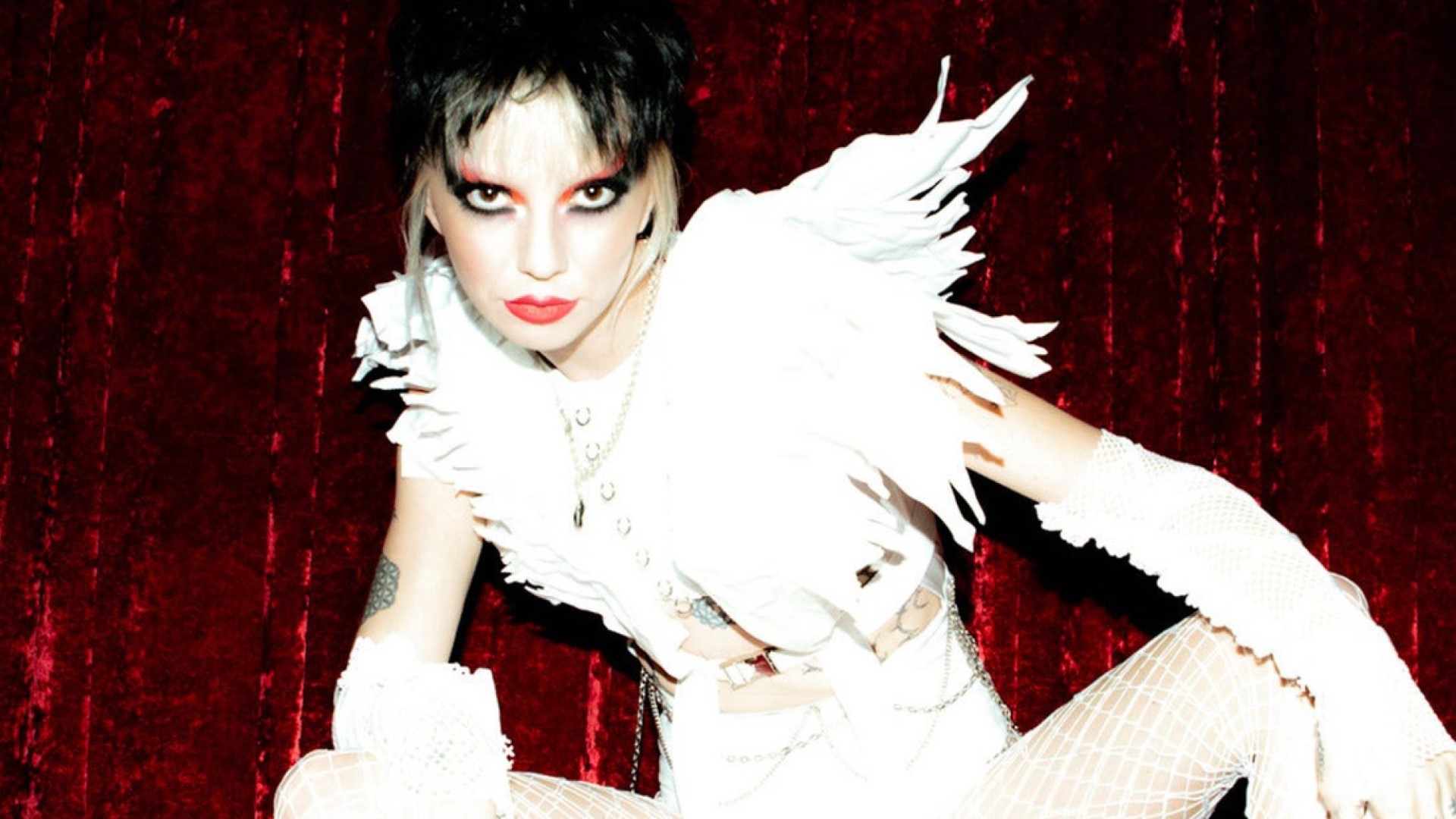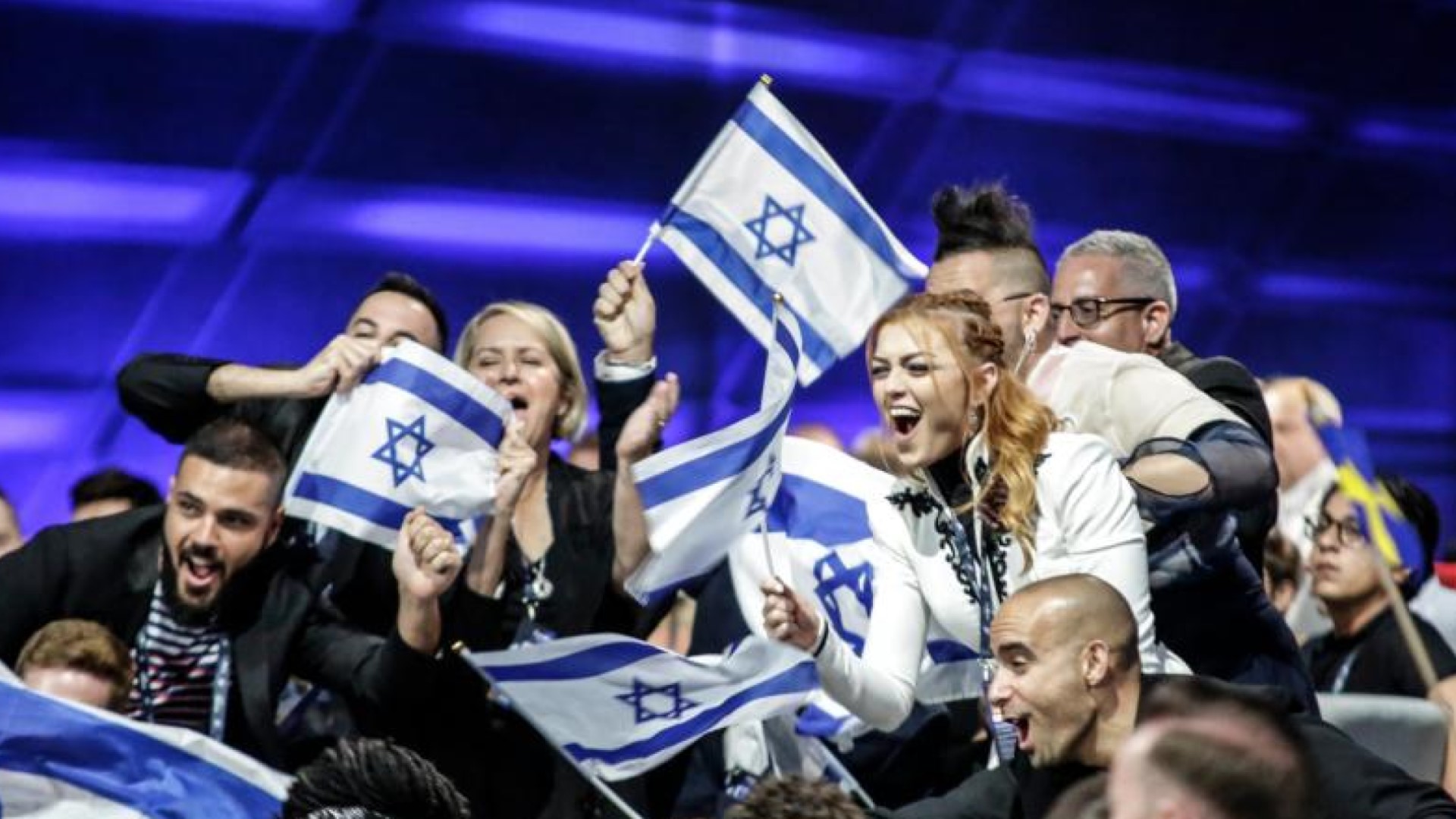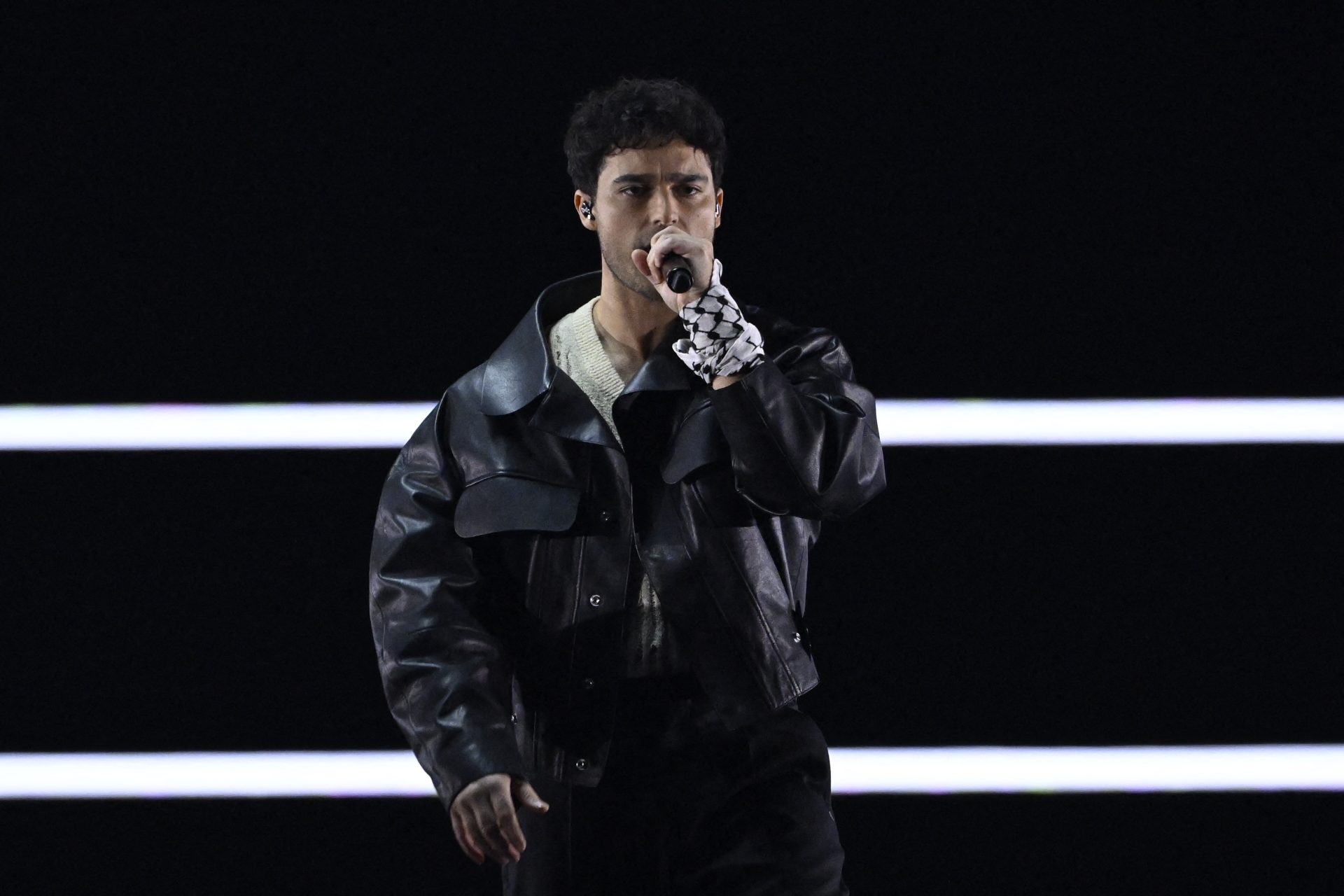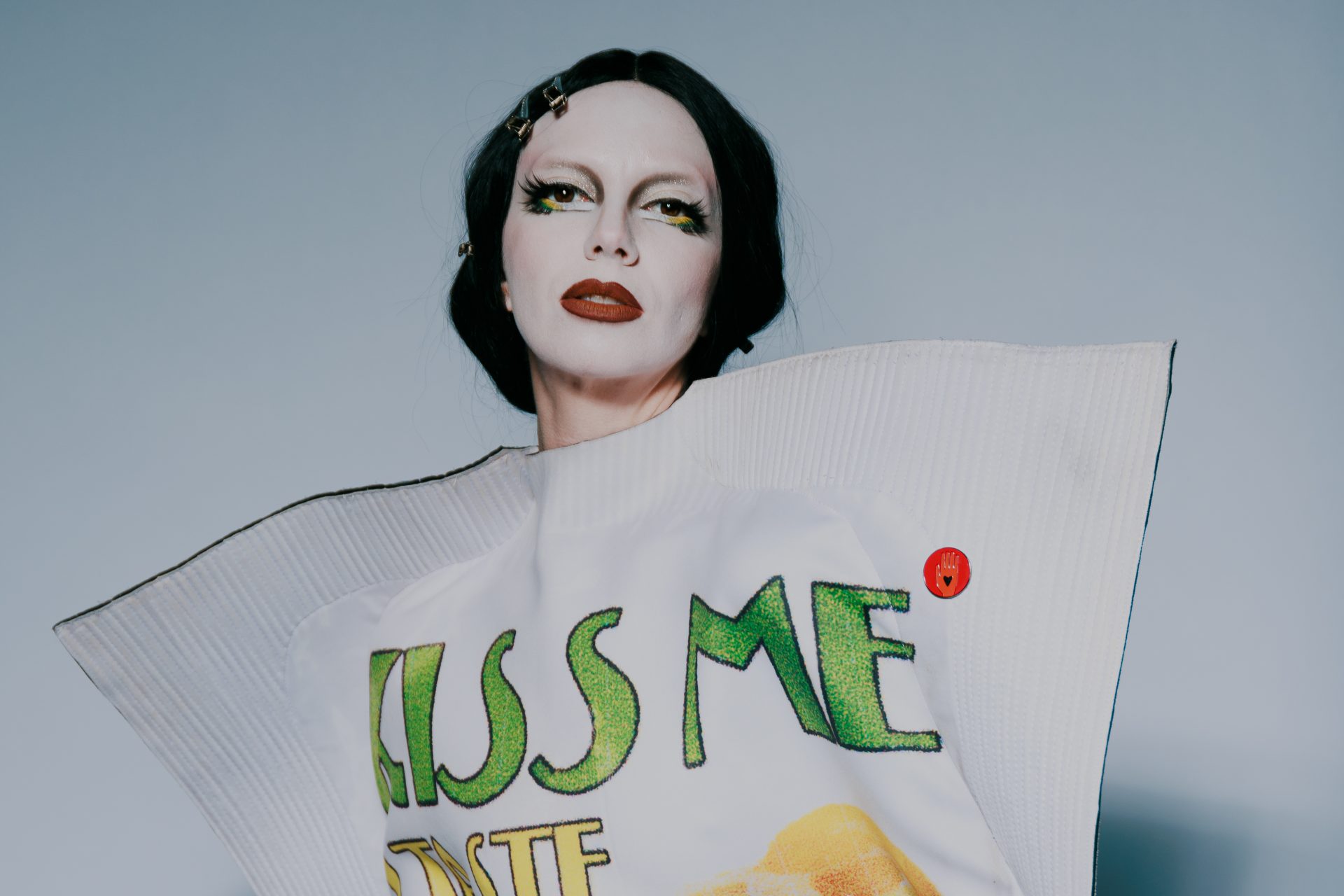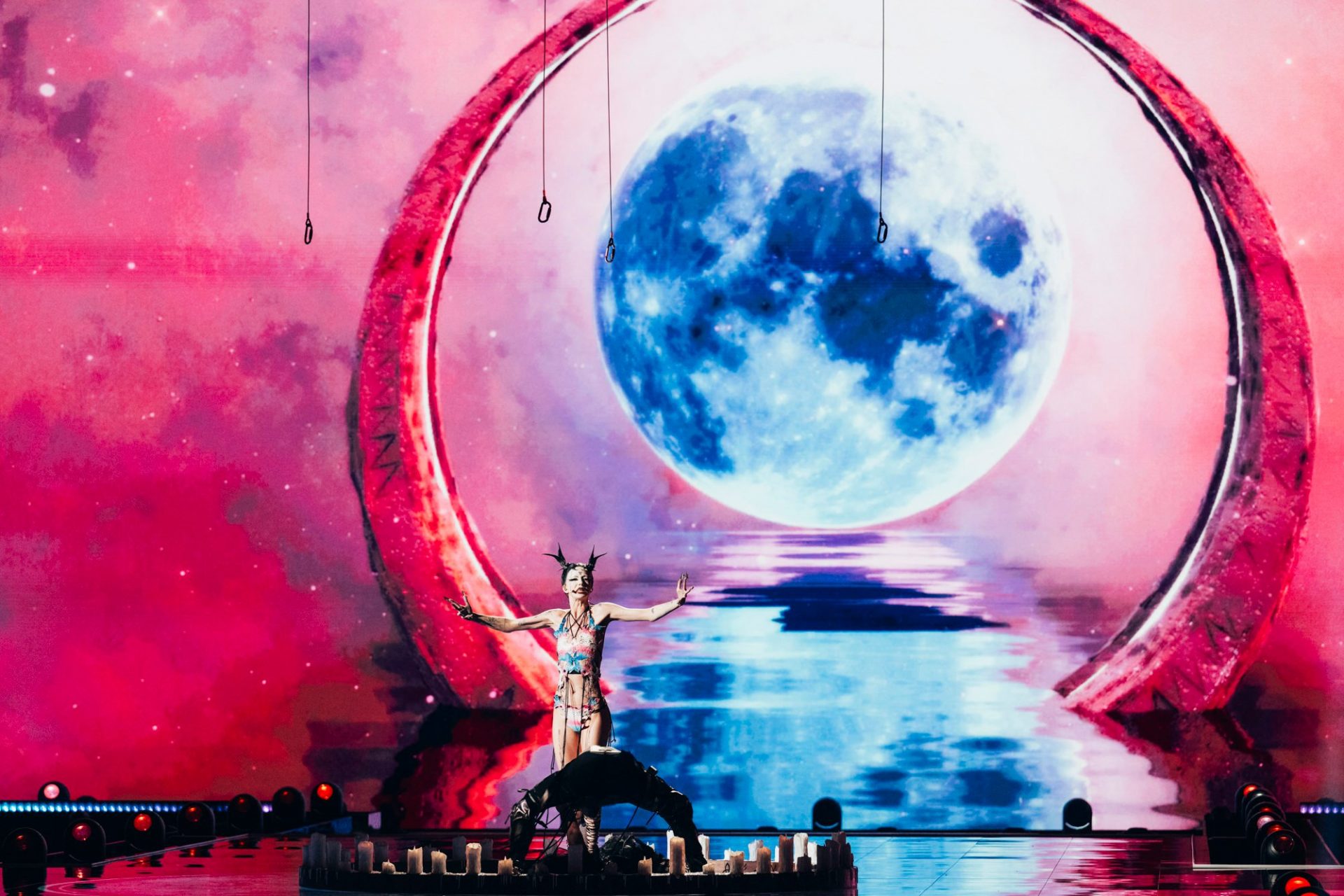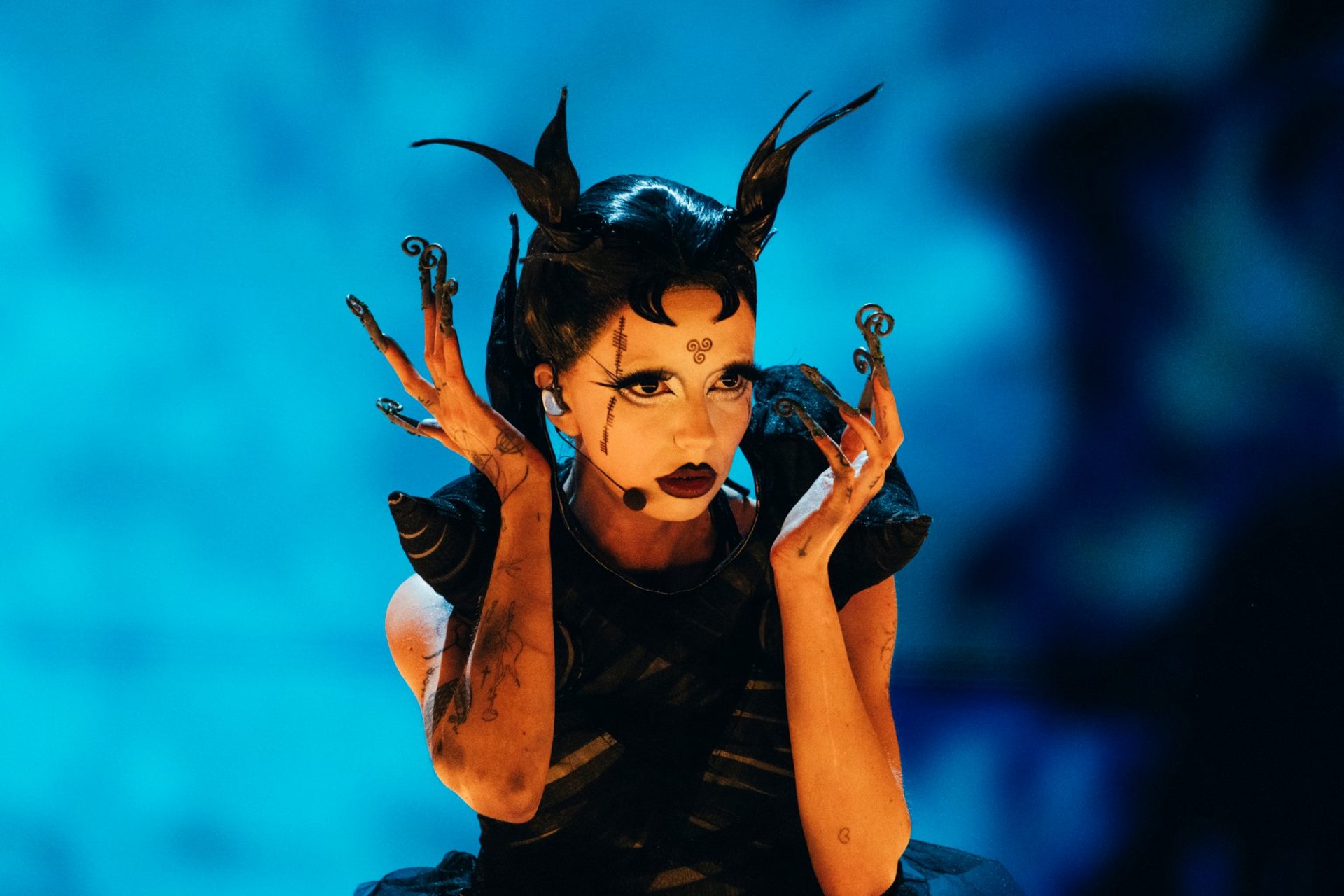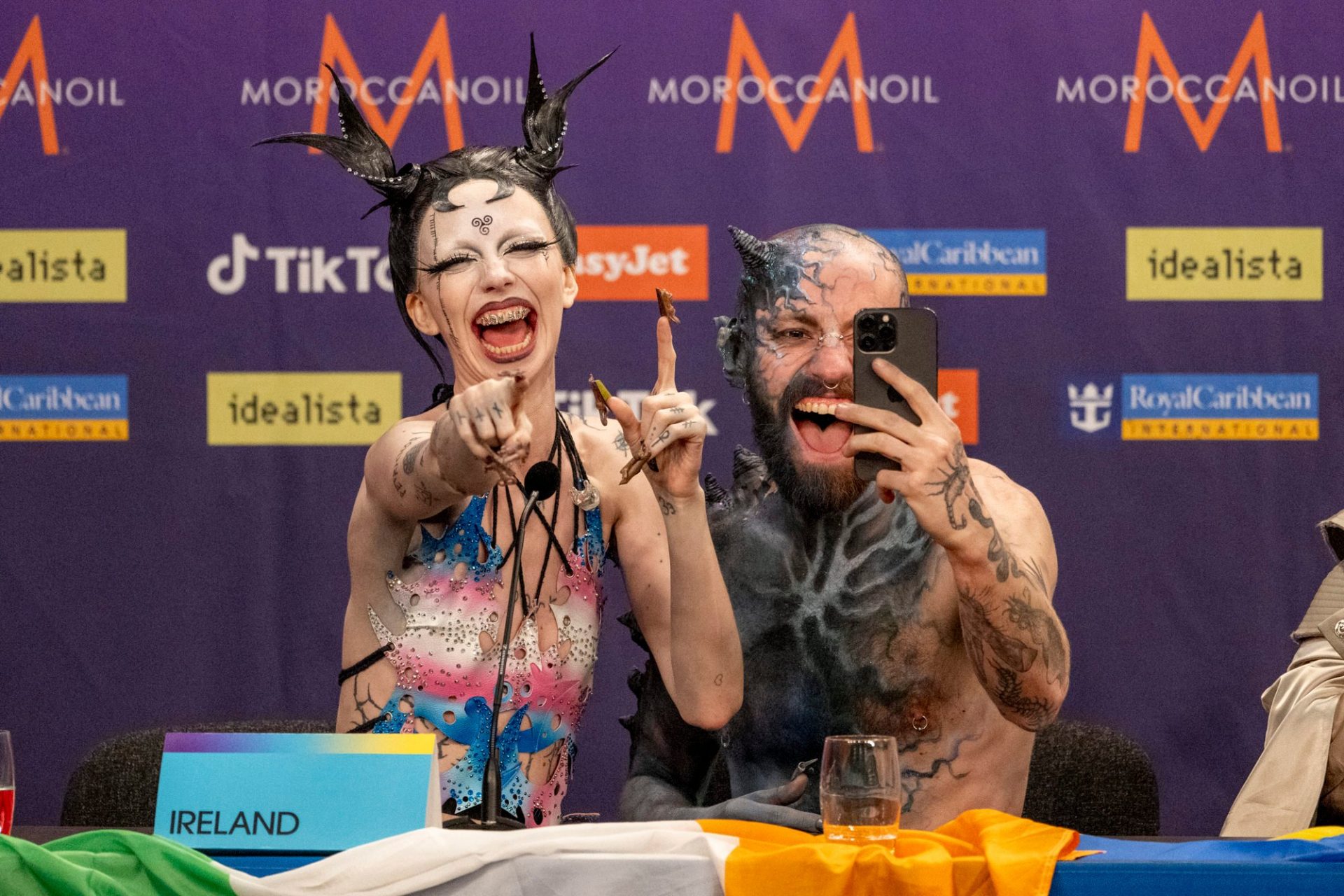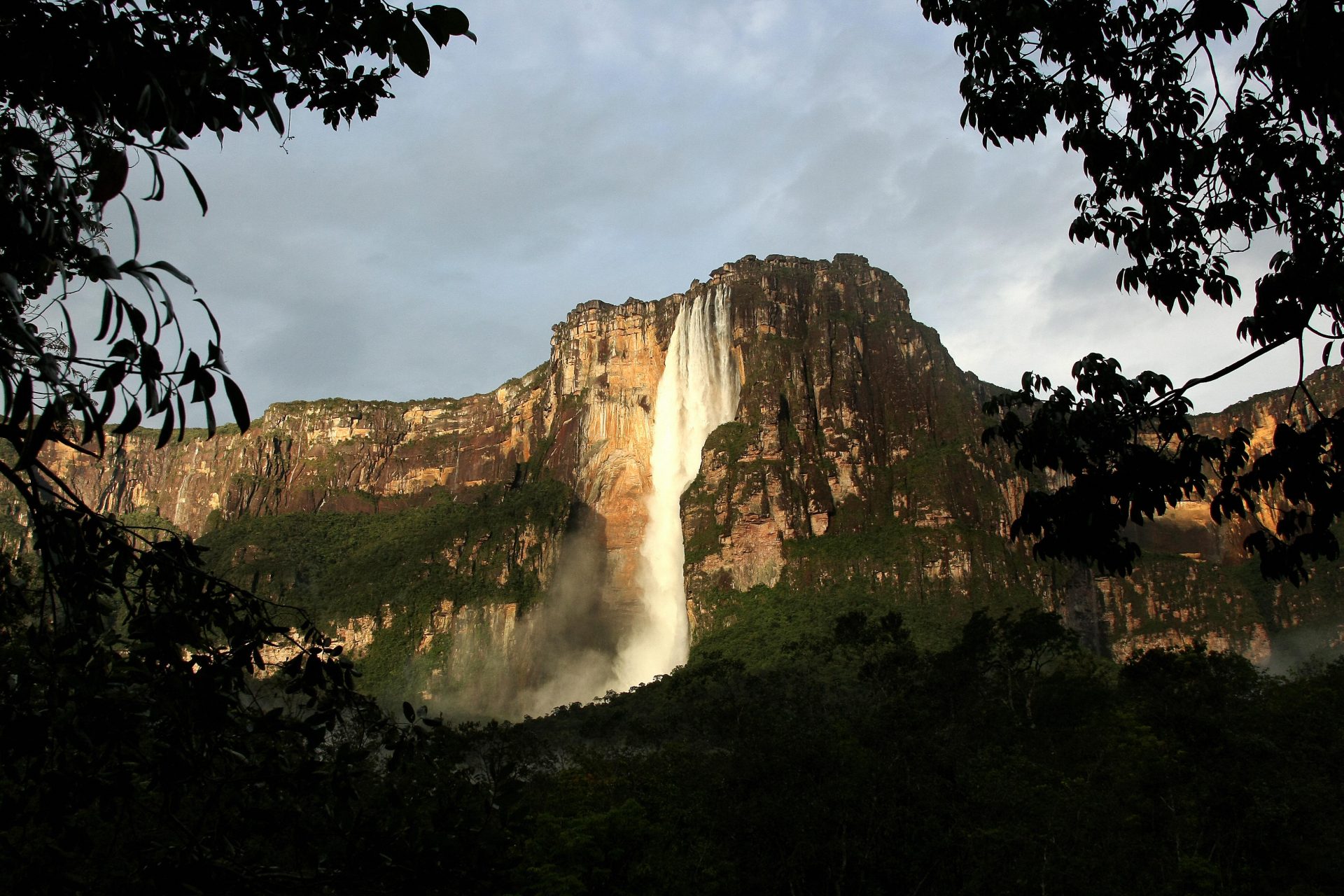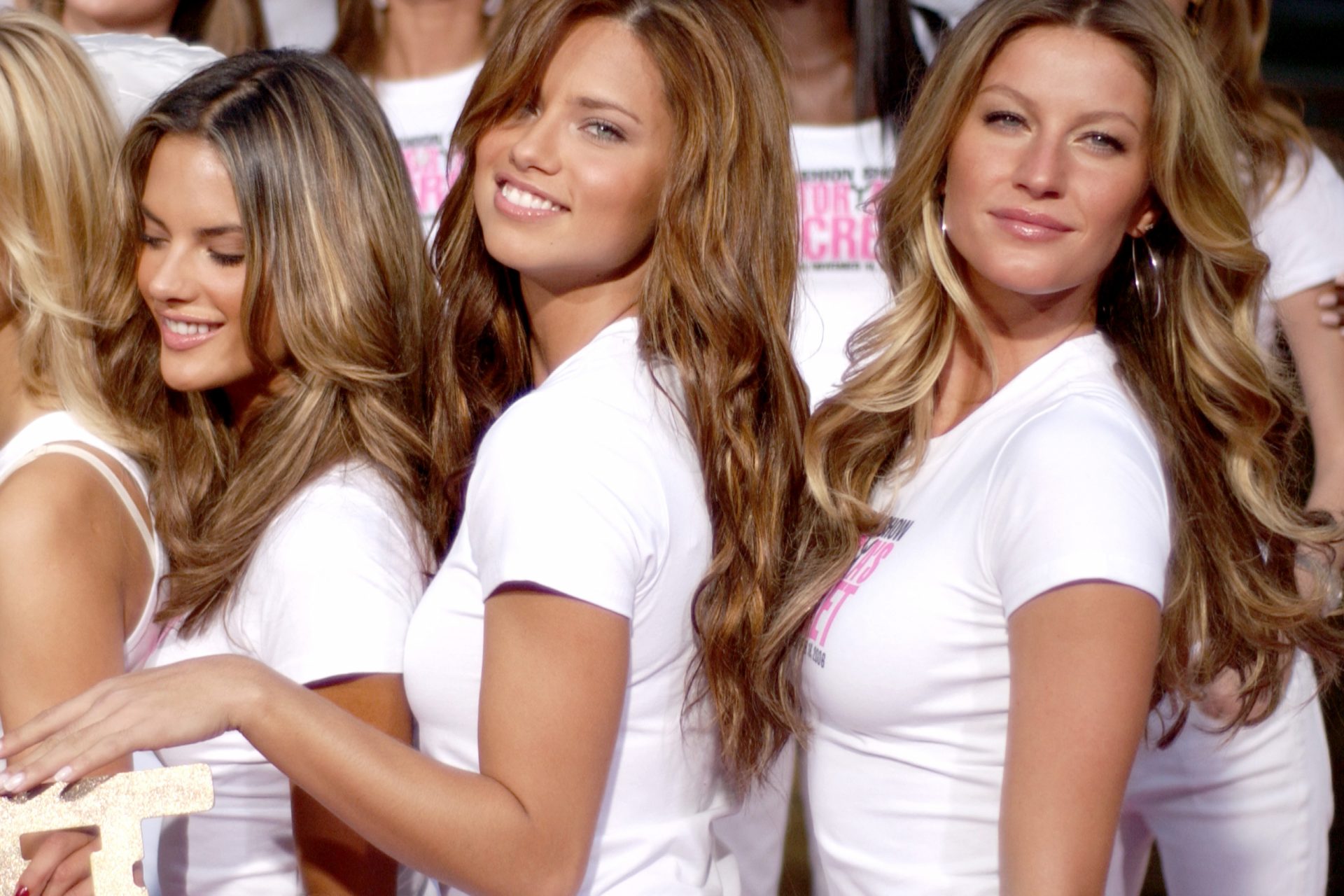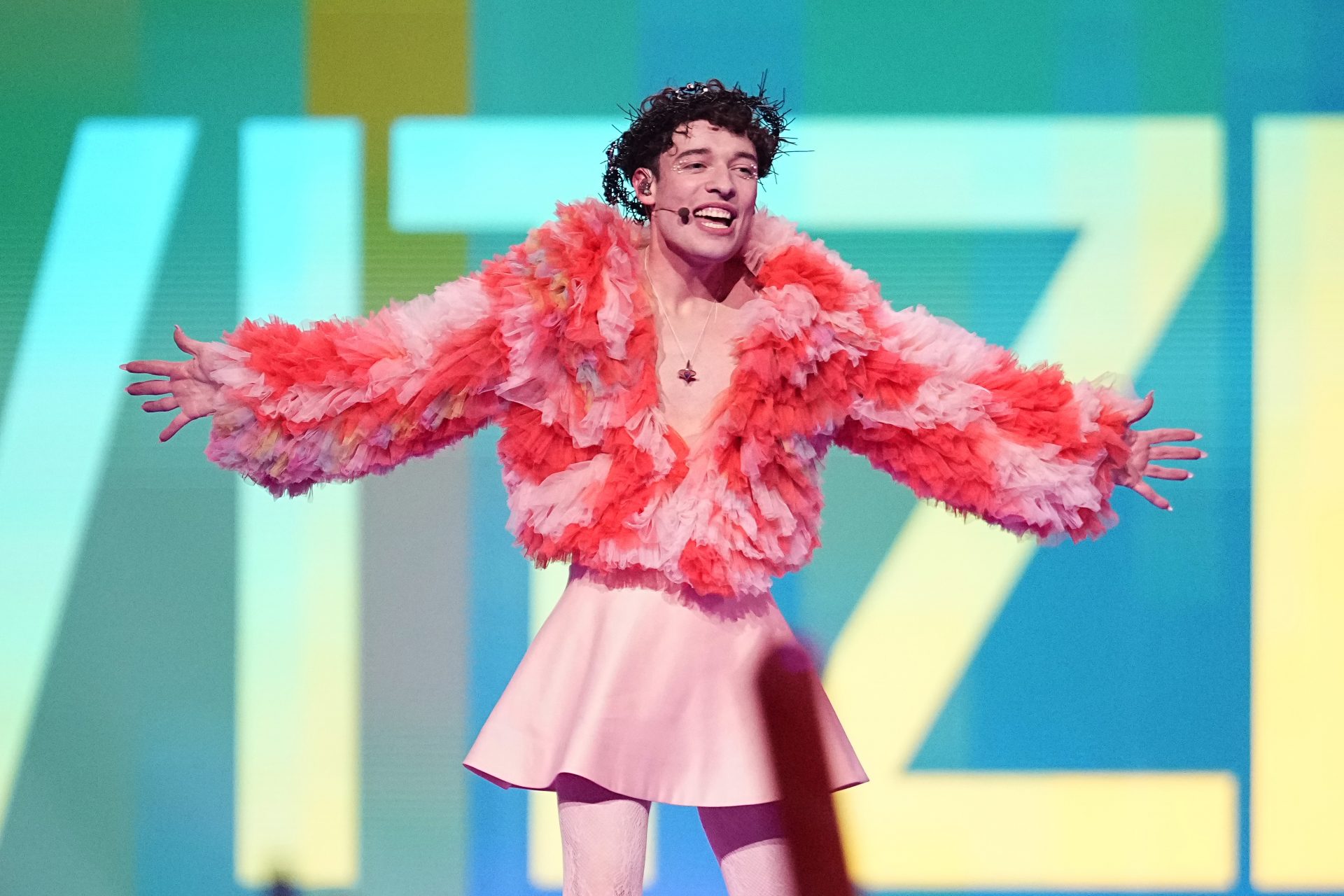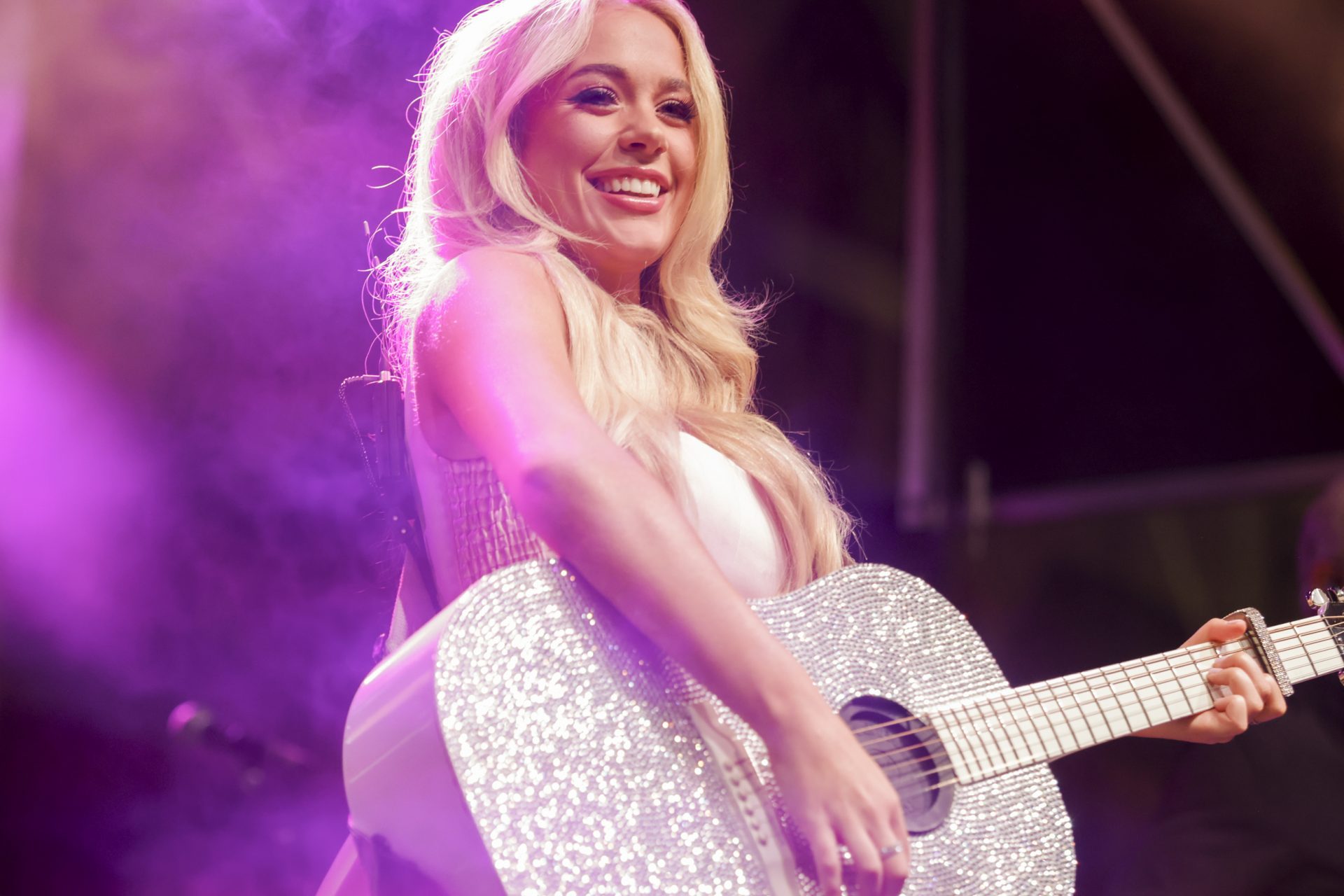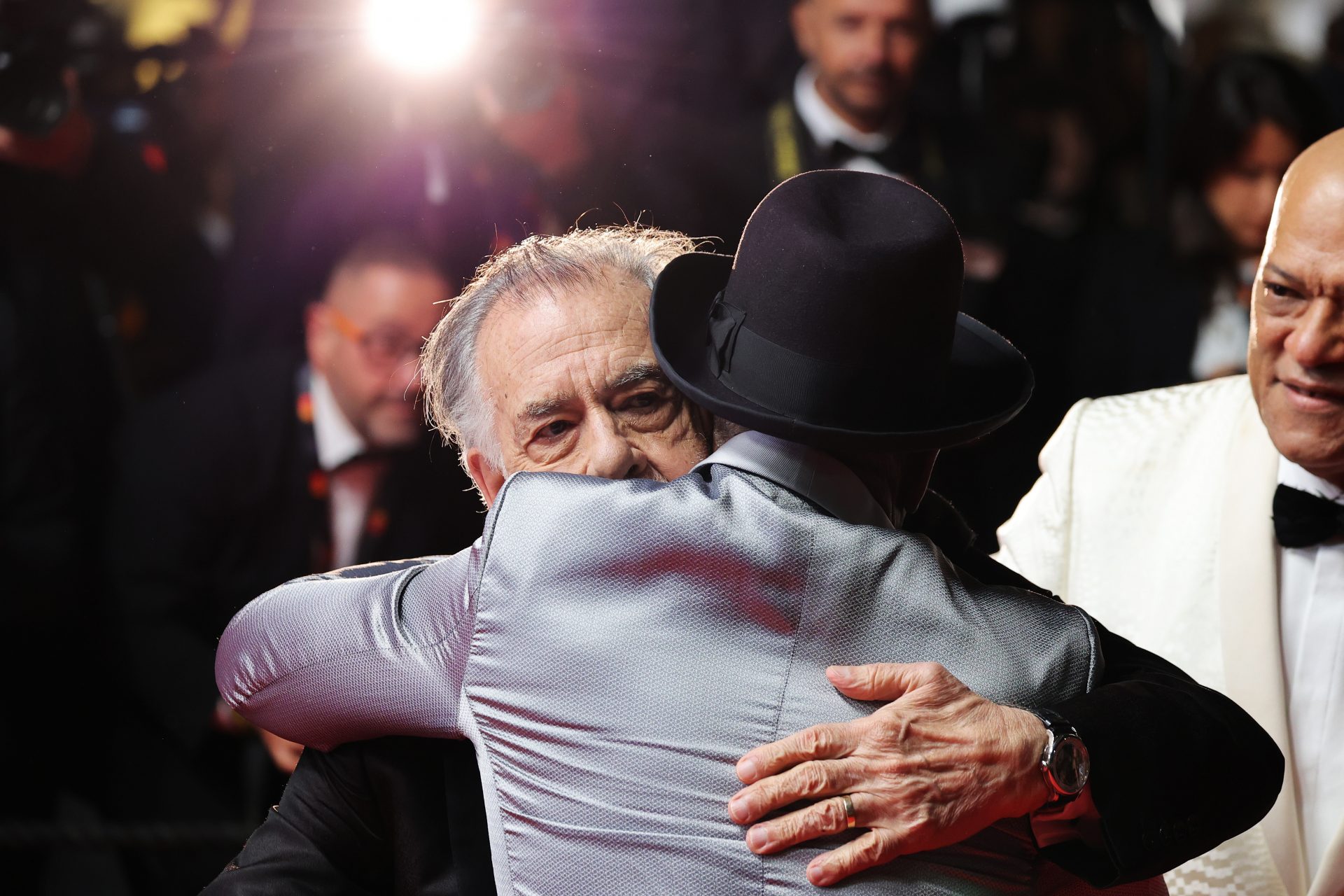Eurovision artists sneak antiwar messages onto stage against broadcaster's rules
It was not allowed, but several artists managed to make a symbolic reference to the people of Gaza during Eurovision's first semifinal on Tuesday. Most talked about was the gesture of Swedish singer Eric Saade, a former contestant of Eurovision with Lebanese roots. During the opening performance, he wore a fragment of a Palestinian scarf, a keffiyeh, around his wrist. But there was more.
One of the Australian artists also incorporated a message into his performance, even if many people had not noticed it. "That's a watermelon on my chest," Fred Leone, the group's Yidaki player, said on Instagram the day after the show. "From the river to the sea! 200 million people watched and celebrated [the song contest] while innocent children, mothers and fathers die by the thousands in a GENOClDE."
Photo: Fred Leone / Instagram
Follow Showbizz Daily to see the best photo galleries every day
In a performance that integrated the language of a colonized people - Pitjantjatjara / Yankunytjatjara - into an English-language song, the aboriginal musician drew a watermelon on his chest because the fruit symbolizes the Palestinian people. The colors of the watermelon are the same as those of the Palestinian flag.
Image: 'One Mikali' means 'One Blood' in two of the native Australian languages. Photo by Sarah Louise Bennett / EBU
"My Great Grandfather survived three massacres. Our families across so called Australia are the survivors of an ongoing genocide," the musician explained. "This was a personal decision. What comes of this no matter how detrimental to my career as an artist is solely dependent on those that hold the power. All my love to the children of Palestine."
Photo: Alma Bengtsson / EBU
As much as the organizers of the Eurovision Song Contest in Malmö intend to keep politics completely out of the picture, many people watching the two semifinals on 7 and 9 May, as well as the final on the 11th, will be reminded of the fact that Russia is excluded from the competition and Israel is not.
It's the elephant in the room, especially visible during the performance of Eden Golan, the Israeli candidate with a striking name (the Golan Heights are widely known as a disputed territory controlled by Israel). The young talent, raised in Russia with Russian-Israeli citizenship, mounts the stage on May 9.
Image: EBU / Eurovision
During the last dress rehearsal on May 8, the singer and her team were loudly booed by the audience present. According to reporters present, the young woman was devastated and did not join the other countries in the Green Room after the show. The Israeli press has also noted that she rarely leaves her hotel room for fear of aggression from antiwar protesters or terrorists.
Image: Sarah Louise Bennett / EBU
Among the contenders in the song contest is Ireland, a country traditionally empathetic to occupied peoples around the world. As NPR reported in March 2024, Ireland showed "some of the highest public support for Palestinians. (Even more than some majority-Muslim countries, according to historical polling data.)" In addition, "Ireland became the first European Union member to call for Palestinian statehood" in 1980.
By January, when the candidate for the Irish entry was confirmed, 600 emails had arrived at broadcaster RTÉ, urging a boycott if Israel were to compete. By March, there were 1,000 emails. Labour Party TD Aodhán Ó Ríordáin also called for Ireland to boycott the competition.
Before she won the national contest that led to her participation in Eurovision, Bambie Thug stated that she opposed Israel's participation in the European song fest. However, she also said the responsibility for any decision regarding Eurovision was with EBU and not with any individual artist.
Image: Sarah Louise Bennett / EBU
On March 29, 2024, a group of Eurovision participants, including Bambie Thug, released a joint statement. It was diplomatic but carried a clear message.
Image: Olly Alexander / X
While not explicitly addressing Israel's participation in the contest, the artists - including Gåte from Norway - called for "an immediate and lasting ceasefire" in Gaza.
Image: EBU / Eurovision
The group of Eurovision contestants also insisted that the Israeli hostages held by Hamas had to be returned. Among them was Iolanda from Portugal, who sang on Tuesday, May 7th, and won a spot in the final on May 11th.
Image: Sarah Louise Bennett / EBU
Megara, the Spanish band playing a song on behalf of the microstate of San Marino, also signed the joint statement.
Image: EBU / Eurovision
In total, ten participants signed the joint statement. It's a minority that, given the total number of entries of 37, comes down to a little less than a third. Mustii from Belgium also joined the group.
Nemo is one of the big contenders for the Eurovision trophy if we are to believe the bookmakers. The artist representing Switzerland has decided to join the group making a statement against the war in Gaza.
While acknowledging the privilege of being able to take part in Eurovision, the artists state that they "do not feel comfortable being silent." Olly Alexander from the UK is one of them.
"It is important to us to stand in solidarity with the oppressed and communicate our heartfelt wish for peace, an immediate and lasting ceasefire, and the safe return of all hostages," the artists continue. They include Saba from Denmark.
Image: EBU / Eurovision
Importantly, the Eurovision participants emphasize that they "stand united against all forms of hate, including antisemitism and Islamophobia." The group, including Silvester Belt who managed to sail Lithuania to the final, adds: "We firmly believe in the unifying power of music, enabling people to transcend differences and foster meaningful conversations and connections."
Image: Alma Bengtsson / EBU
The artists conclude by saying: "We feel that it is our duty to create and uphold this space, with a strong hope that it will inspire greater compassion and empathy." The Finnish participants of Windows95man, another duo that is going to the final, are also in the group writing this special statement.
Image: EBU / Eurovision
The Irish artist added to the general statement that their personal "stance on double standards remains firm". With 'double standard', they meant the exclusion of Russia from Eurovision after the invasion of Ukraine while the current war in Gaza has no consequences for the contestants.
Image: Alma Bengtsson / EBU
As Bambie Thug explained, if they had boycotted the event it would have meant "one less pro-Palestinian voice at the contest".
Image: EBU / Eurovision
The fact that one is 'pro-Palestinian' will not be visible during the semifinals and the final, though. The organizers of Eurovision, EBU, have prohibited the display of Palestinian flags by performers or guests. Flags of all competing countries, as well as the rainbow flag for the LGBTQ community, are the only flags allowed.
Image: EBU
The band Hatari from Iceland already found out what it meant to wave a Palestinian flag at Eurovision. They did so in 2019 during the final in Tel Aviv, Israel, and were immediately escorted out of the studio. In addition, Iceland had to pay the EBU a fine for breaking its rules.
In 2024, it was Eric Saade who drew the anger of the EBU. The Palestinian scarf around his wrist, a political symbol, caused the Eurovision organizers to apologize and take Saade's performance off their social media. "We regret that Eric Saade chose to compromise the non-political nature of the event," they said.
Follow Showbizz Daily to see the best photo galleries every day
The following day, Saade responded to the organizers: "I got that scarf from my dad as a little boy, to never forget where the family comes from. I didn't know then that it one day would be called a 'political symbol'. ... I just wanted to be inclusive and carry something that's real to me – but EBU seems to think that my ethnicity is controversial. That says nothing about me, but everything about them."
Bambie Thug also complained about censorship of their pro-ceasefire message by the organizers of Eurovision. The Irish singer gave an impressive performance at the Eurovision semifinal on Tuesday, May 7th, and got a ticket to the final. However, not everything they wanted to say could be said.
Performing their song 'Doomsday Blue' at the semi-final on Tuesday in Malmo, Sweden, the singer from Cork was forced to change their body paint. They had written 'ceasefire' and 'freedom' in an early Medieval script and were told by Eurovision organizer EBU to change the text to 'crown the witch'.
Image: Sarah Louise Bennett / EBU
In a press conference, cited by the Evening Standard, Bambie Thug said: "It was very important for me because I'm pro-justice and pro-peace. Unfortunately, I had to change those messages today to 'crown the witch' only - [an] order from the EBU."
Image: Sarah Louise Bennett / EBU
Ironically, Bambie Thug has been able to get more attention to her message than if the EBU had simply allowed her to wear the makeup as she wanted it. In that case, few people would have noticed what was written on her body and the controversy would have been much smaller. It is a clear example of the Streisand effect: if you try very hard to divert attention from something, it actually causes people to start talking about it more.
Follow Showbizz Daily to see the best photo galleries every day

